Pacou – Symbolic Language Remixes
Label: Tresor Format: 12″
Once again, we can rely on Tresor to der the goods. Think Jeff Mills, think Adam Beyer. Pacou is in that vein, with a slab of tough minimal techno. Symbolic Language Remixes is a belting EP, nasty hard and fucking groovesome. It sweats rhythm like a heavy weight boxer.
“Texture # 1” wins it for me. It’s as dark and garbled as you like – and I like it lots. A spazzy synth (vaguely reminiscent of Synewave) does its thing above the all pervasive beat. Out of nowhere comes a high pitch fucked- up discord, it buzzes around for a bit then leaves the same way. I love this in a Techno toon, morphing itself from one thing to another without ever having noticably done anything. The Memory Foundation Mix is deeeeeper and driving, it`s still the same tune, and it still sounds hallucinogenic in it`s own right. Something that sounds like a voice floats around: it could almost be floating around inside your head. Yup, it sounds that detatched. But it isn`t, it’s on the vinyl – take my word for it. Reinforced`s mix is the hardest floor thumping number, no room for breath here it as goes strait through from beginning to end. Ok, the Heiko Laux mix leaves me a little cold, but you can`t go wrong with this slab.
-Alaric Pether-
Paddington Breaks – No Snare Too Loud EP
Label: Ill Format: 12″, CDS
Another entry in the lexicon of breakbeat confusion which proliferates daily, No Snare Too Loud’s eight tracks skip through melodic beats and frantic, tumbling sequences. Exploring the possibilities of what often sound uncomfortably like factory presets on dodgy digital keyboards, “Rentabods” and “We Are Detached” resembe lo-fi Squarepusher pieces without the fretless bass noodling, interspersed with the booming, looped miniature “Snooze Button Moment” and the decidedly 8-bit sampled sounds of “Guaranteed Paddington Access”.
Frequently slipping into the realms of Aphex Twin‘s more melodic moments and Tom Jenkinson‘s fusionist tendencies, much of what’s on offer here feels like sketches and draft copies of a blueprint that awaits further development. The closing “Fill the Gap,” however, expands on its initially unpromising blend of laid-back Jazzy stylings with a engaging rhythmic undertow, but as with several other tracks, peters out rather than closing satisfactorily.
-Freq1C-
Nam June Paik – Works 1958-1979
Label: Sub Rosa Format:
 The ghostly strain of dissonant elephants tiptoe through the stringboard of the piano, and, the detuned piano is massaged from the inside and it is only the striking of the keys that is seemingly normal. It is as if the aurora borealis has somehow grouped itself around the piano, the keys, the stool, his stool, the room, the air, the hair on his arms that reach into the piano and drag out more emotions, more feelings left lying at its bottom. It’s a piece for Merce Cunningham – music and movement have danced around one another for some time now and it’s heartening to see the occasional tango betwixt but why not more often?
The ghostly strain of dissonant elephants tiptoe through the stringboard of the piano, and, the detuned piano is massaged from the inside and it is only the striking of the keys that is seemingly normal. It is as if the aurora borealis has somehow grouped itself around the piano, the keys, the stool, his stool, the room, the air, the hair on his arms that reach into the piano and drag out more emotions, more feelings left lying at its bottom. It’s a piece for Merce Cunningham – music and movement have danced around one another for some time now and it’s heartening to see the occasional tango betwixt but why not more often?
It’s quite close to a cloudburst, these sounds. May rain? A faroff rumble on the horizon and yet it’s seemingly music for cogitation, for planning, for scheming. The brainstorm? “Hommage a John Cage” brings a swath of quick voices, then bells, then ringing singing birds, and others. A tracing tracking a history of musical development? The test tone. And then a literal slight return. A duet of piano and metal ensues. One takes prominence, then the other. A trading of places? And the voice wends its way throughout the sound and fury, a chanteuse on the chartreuse loose, haunting like a bird across the rafters. And the sound of a harpsichord?
From the liner notes of “Etude for Piano Forte”, the final piece:
“Paik played some Chopin on the piano, broke off, weeping, and got up and threw himself on the innards of another, eviscerated piano that lay scattered on the floor, then picked up a wickedly long pair of scissors and leaped down to where (John) Cage, the pianist David Tudr and Karlheinz Stockhausen were sitting in the front row. He removed Cage’s suit jacket and started to slash away at his shirt with the scissors. After doing so, he poured a bottle of shampoo over Cage’s head and also over David Tudor’s. (As Stockhausen edged nervously away, Paik shouted “Not for you!”).“
-David Cotner-
Panacea – Hedonist
Label: Position Chrome Format: 12″
Continuing his straight-edge assault on the darkcore dancefloor, Mathias Mootz remixes his own “Hedonist” as a glaring vocoder-led two-step though Futurist exhortations that “There is much to be done by this generation.” Accompanied by some niftily distorted bass synth stabs, Panacea here seems to be in upbeat mood by his usual (allegedly) nihilistic standards. Precision label bosses Makai turn in a searing mix of “Hybris,” pushing all the right-brain buttons to instruct the central nervous system to activate breakbeat frenzy mode with a phased, paranoiac edge.
-Freq1C-
Panacea – Twisted Designz
Label: Position Chrome Format: CD, 2LP
An absolute killer of an album. The grinding noise of Industrial Metal slammed into drum & bass breaks to quicken the steps of hardcore No U-Turn aficionados and Techno die-hards alike; darker than any Goth-rock poseurs could ever hope in their most doom-laden nightmare, the sounds of a decadent society’s technology in extremis.
If there’s any problem, it’s in the crushing, relentless body blows, one after another, which can wear down all but the most hyped-up of listeners under a barrage of portentious throbs and fucked-over samples, tearing synths and two- step rhythms. Never mind, surrender to the assault, put UP the volume and relish the joy of letting go all pretence that melody matters. Brutalist it may be, but Twisted Designz operates in the same cathartic field as much extreme music, from Alec Empire to Merzbow – ascetic, even, given it’s creator’s avowed straight-edge stance on the consumption of drugs, stimulant or otherwise. Which is odd, because that’s what most of the people who really get off on this record will be under the influence of when they enjoy it the most.
Perhaps, under cold analysis, anything this extreme is in danger of becoming tad samey after a while, despite the undoubted skill with which it is constructed. Even clattering breaks, ominous chords and nerve- shattering effects can become dulled to a jaded palette in a decade which has plundered the last fifty years and more in recombinant cut-and-paste strategies in the endless quest for novelty. Well, in that case, enjoy it now. Even if this is head- banging for the Nineties, be thankful that there are no guitar solos.
-Freq1C-
Panacea/Cativo – The Hardest Tour On Planet Earth
Label: Position Chrome Format: CD/4LP
 Strange how dated this album can sound at time; so Hardcore, so Drum & Bass, so Techno. Fast, furiously kinetic and splashed with rewinds as it is, The Hardest Tour On Planet Earth still sounds like not that much has changed since the early Nineties. Yes, there’s a full-tilt engagement with the technology, but it’s there to make the beats harder and the bass tear up even harsher than before. How far can BPMs and timestretches go anymore?
Strange how dated this album can sound at time; so Hardcore, so Drum & Bass, so Techno. Fast, furiously kinetic and splashed with rewinds as it is, The Hardest Tour On Planet Earth still sounds like not that much has changed since the early Nineties. Yes, there’s a full-tilt engagement with the technology, but it’s there to make the beats harder and the bass tear up even harsher than before. How far can BPMs and timestretches go anymore?
Whatever, Panacea and Cativo have set out on their permanent world tour, and this is the soundtrack; and some of the harshness and evil basslines which their combined talents promise are in Panacea’s making; he will insists on bringing in those awful Soul Diva vocal samples, vibrato and everything, whcih is especially evident on the otherwise energetically invigorating “State Of Extasy”. As for “King Of The Jungle”, with it’s runaway MC title rant, so far so Ravey; but then comes the Happy Hardcore insertion, and things just get cheesy and silly. Showing yr roots is one thing, but subjecting poor punters to this kind of abomination is just plain sick. Fair enough, they might like it after all, and perhaps it keeps the Darkcore drumandbass from getting too samey, but… ho hum. Biggest build up has got to be for Panacea’s “Prince Of Darkness 98”, which also shows that when he wants to go for spine-shivering darkness, he’s more than capable of whipping up a tightly-coiled distorted beat storm to scare the bejeesus out of passing Speed Metal fans. Come to think of it, the bonus tracks on the CD version are the best things here, as Cativo’s “Variation (Original Master)” has got some thrillingly upbeat rhythms circling the scarred bassline.
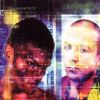 OK, there’s plenty of frenetic rhythms, and the album is as lurid and technologically-obsessed as its scene demo’n’hardman-posing picture sleeve promises. However, the shrill intake of hyperspeed House piano on Cativo’s “Red Alert” soon palls; except for those gibbering sould wasted enough to be spasming to it and the juddery bass at 2,000,000BPM, who are excused ‘cos they’re on a different wavelength after all. When it comes down to it, The Hardest Tour On Planet Earth slams out the tunes (need they ever have been called “choons”?) with so much energy that just listening at home is exhausting. Those clubbers must be several kilos lighter after a session with Cativo and Panacea, who do, after all, know the score as far as their breakbeat Techno madness goes.
OK, there’s plenty of frenetic rhythms, and the album is as lurid and technologically-obsessed as its scene demo’n’hardman-posing picture sleeve promises. However, the shrill intake of hyperspeed House piano on Cativo’s “Red Alert” soon palls; except for those gibbering sould wasted enough to be spasming to it and the juddery bass at 2,000,000BPM, who are excused ‘cos they’re on a different wavelength after all. When it comes down to it, The Hardest Tour On Planet Earth slams out the tunes (need they ever have been called “choons”?) with so much energy that just listening at home is exhausting. Those clubbers must be several kilos lighter after a session with Cativo and Panacea, who do, after all, know the score as far as their breakbeat Techno madness goes.
-Freq1C-
Panasonic / Alan Vega– Medal
Label: Blast First Format: 12″
As demonstrated at the London gigs earlier this year, Panasonic (or Pan Sonic as legal action now dictates they shall be known – do multinationals not have a sense of irony? Silly question….) owe a huge debt to Alan Vega and Suicide. This, the electro-throbsters’ first ever recording with vocals, adds a new dimension to the familiar minimal shudders and ocsillator shreds of their previous output. Vega’s anger is malevolent and wasted at the same time, an inchoate rage against System, Religion and Society which bounces echoes off the circling drones and slippery spits of electronic noise Pan(a)sonic generate around him. “Fuck Jesus”, he says on ‘No Home Kings’, and he probab ly would too, if he wasn’t busy right now with these two Finnish guys.
Vega provides his best Elvis impersonation on ‘Fun In Wonderland,’ with yells and moans of the ‘Frankie Teardrop’ variety eerily counterpointed by the underlying pulse beat. Sincerity, New York style – a s sincere as a switchblade in a European post-modern noir. Does Jean-Luc Godard know about this record?
-Freq1C-
June Panic And The Silver Sound – Horror Vacui
Label: Secretly Canadian Format: CD
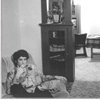 This is an amazing collection of wonderfully catchy tunes that are loaded with great guitar hooks, unpredictable chord changes, and clever/intelligent-without-being-a-smarty-pants lyrics. Have to say: great driving music. I put this album on just as I was crossing the one-lane Iowa-Nebraska border at 3 a.m. and ended up hitting the replay button until I was almost in radio-worthy Kansas City – means I must have listened to this about 6 times in a row. The vocals are reminiscent of Bob Dylan during his ballad phase, which is good, while the accompanying music could belong to anything from a good Rock band, old fashioned Country band, or even a Pop band, loaded with cool twangy guitar, moody chord progressions, just the right amount of minimal percussion, and poignant bass lines.
This is an amazing collection of wonderfully catchy tunes that are loaded with great guitar hooks, unpredictable chord changes, and clever/intelligent-without-being-a-smarty-pants lyrics. Have to say: great driving music. I put this album on just as I was crossing the one-lane Iowa-Nebraska border at 3 a.m. and ended up hitting the replay button until I was almost in radio-worthy Kansas City – means I must have listened to this about 6 times in a row. The vocals are reminiscent of Bob Dylan during his ballad phase, which is good, while the accompanying music could belong to anything from a good Rock band, old fashioned Country band, or even a Pop band, loaded with cool twangy guitar, moody chord progressions, just the right amount of minimal percussion, and poignant bass lines.
-Holly Day-
Panic DHH – Panic Drives Human Herds
Label: Digital Hardcore Format: CD
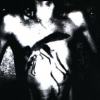 Finally, it’s out. And as is customary at moments like this, I have to scream “New DHR shit! New DHR shit!� and jump up and down like a kid who’s lost his Ritalin. The long-awaited album by Alec Empire’s new protégés, Panic Drives Human Herds is an awesome affair. Brutal, uncompromising, hard and bleak, it’s been well worth the wait. Opener “Leader� is like a stripped-down Skinny Puppy: “I LIED…� shrieks a hugely distorted Robbie Furze over what sounds like an enormous factory making- well, I dunno, something pretty fucking unpleasant. And noisily.
Finally, it’s out. And as is customary at moments like this, I have to scream “New DHR shit! New DHR shit!� and jump up and down like a kid who’s lost his Ritalin. The long-awaited album by Alec Empire’s new protégés, Panic Drives Human Herds is an awesome affair. Brutal, uncompromising, hard and bleak, it’s been well worth the wait. Opener “Leader� is like a stripped-down Skinny Puppy: “I LIED…� shrieks a hugely distorted Robbie Furze over what sounds like an enormous factory making- well, I dunno, something pretty fucking unpleasant. And noisily.
Then the guitars kick in for “Sterile�, and for a moment it sounds like we’re firmly on Ministry territory, until the electronics jump in and change the whole dynamic. The production throughout the album is incredible- nothing seems to stay in one place, everything phases in and out of everything else, and not a single sound on the album sounds clean. Glitchy, distorted, and every now and then beaten shitless by Drill’n’Bass loops, this really is what Nine Inch Nails would sound like if they were a Digital Hardcore band.
Furze’s vocals consist largely of screaming nihilistic mantras through what sounds like Ogre’s lungs, but really the whole is so seamless his voice is treated the same as any other instrument- incredible cruelly. Even the quiet passages are nasty – dark, disturbing, and always with the sense that whatever comes next will very possibly kill you. It’s like being a hostage, not knowing when they’re gonna behead you on TV, but having a pretty good idea that that figures in their plans. Song structures are likewise chaotic and unpredictable- what started as an Industrial Metal stomp may mutate into a Black Light District-esque glitchtrack, before the immense percussion kicks in. There are points when the name Kevin Martin comes to mind, but even early God were never this brutal. Possibly Godflesh at their fucked best, but even that’s not quite right.
Like Skinny Puppy, there are moments of beauty, trying vainly to shine through the onslaught- the Aphex Twin-like “Simples (starve)� is built over an echoed guitar line that gradually gets drowned in static and grime through which Furze’s screaming becomes increasingly plaintive. For a band with (already) such a well-defined and distinctive sound, they’ve made a remarkably diverse album, treading most corners of the existing Industrial Rock genre, while managing to find time to hack out a couple of new ones for themselves.
Album closer “Common� is a seven minute epic, building from the quietest of static loops (with a brief moment when I’m reminded of disc two of Alec Empire’s Intelligence and Sacrifice) into a full-on Manson-esque riff monster before suddenly cutting right back to something Eno might have done around the time of NerveNet if he’d been in a really fucking bad mood. It then builds again, this time into a mess of tortured electronics which gradually fades to nothing, although I suspect there may be a subliminal message to restart the album from the beginning at this point.
If the amount of stickers plastered all over London (and the size of the crowd packed in for their recent KMFDM support slot) is anything to go by, Panic DHH are gonna be BIG. And if they don’t manage to be BIG, then you can bet your pretty little ass they’re gonna be LOUD. Of course, where they go from here is a big question, but I’m definitely looking forward to finding out.
-Deuteronemu 90210 is only smiling because they haven’t found the bodies yet-
Panic DHH – Spreading The Virus EP
Label: Hatechannel Format: CDS
 Panic Drives Human Herds are seemingly intent on doing just that if the opening squall of brutal digi-hardcore on this EP is anything to go by, beating a wheezing, bleeping path into harsh beats and harsher guitar storms on “U Wish”. Accompanied by a cut-up post-Industrial video featuring epiplepsy-inducing cuts and shots of a world at war with itself in various ways, their calling card is splattered with instructions – “Don’t think/Don’t Feel/Don’t Ask/Just Hate” – and juddering swathes of analogue noise and digital detritus. Something about the repeated title and the fathomless blasts of sound calls Ministry‘s “So What” to mind, but mangled into less linear format and twitching uncomfortably as the band prod and poke their instruments until they squirm..
Panic Drives Human Herds are seemingly intent on doing just that if the opening squall of brutal digi-hardcore on this EP is anything to go by, beating a wheezing, bleeping path into harsh beats and harsher guitar storms on “U Wish”. Accompanied by a cut-up post-Industrial video featuring epiplepsy-inducing cuts and shots of a world at war with itself in various ways, their calling card is splattered with instructions – “Don’t think/Don’t Feel/Don’t Ask/Just Hate” – and juddering swathes of analogue noise and digital detritus. Something about the repeated title and the fathomless blasts of sound calls Ministry‘s “So What” to mind, but mangled into less linear format and twitching uncomfortably as the band prod and poke their instruments until they squirm..
“J Death” provides a full-choke scattergun blast of vitriol, as rapidly layered hyperspeed gnashing vomits over the broadcast voices of the damned. Phew. “If” doesn’t let up the pace, stalking in on electronic tank tracks – guitarist Robbie Furze and friends have obviously been taking note of his time playing with Alec Empire to get those riot beats upgraded and supercharged ready for the next rumble – with the emphasis on rumble. Acts of uncivil electronic disobedience aside, the noise storm is relentless, torrential waves spewing forth with abandon and scant regard for rhythm. Lastly, the title track runs electronic eavesdropping into interference patterns as a less chaotic coda, finishing off an EP of cathartic noise in sinisterly elliptical mood.
-Freq1C-
Pan Sonic – A
Label: Blast First Format: 2×12″,CD
Each new Pan Sonic record slips a few wrinkles in to uses a few oscillators can be turned to, from the minimal thump of Vakio via the harsh twists of Osasto and Endless with Alan Vega. A simultaneously thumbs its nose at the corporation who removed the vowel from the duo’s name, and progresses from the more developed sound of Kulma into something which combines all that Pan Sonic were before into something quite substantial, delving deeper and deeper into the minute possibilities of their (self-)restricted sound source.
A sound palette based around interlocking tone generator beats, samples of same and further tones pitched and warped may not come across the most promising of material to those unfamiliar with the Pan Sonic sound, but anyone yet to be acquainted with their increasingly influential work will find more to engage than the more apparently monotone early albums. This is not to say that A is more commercial, but more varied – the piercing test-tones and sub-bass whirr of “Aleneva” are still unlikely to convince many casual listeners, while the juddering “Telakoe” disrupts through its layered mix of buzz and thud and the following “Sarmays” deploys flanging feedback. A beat may maintain the linearity, the sine-wave regular and precise, but it’s the shimmering electronic haze woven around, under and through the wider variety of pulses and reverberations which has become even more cleverly arranged than before, and more often breaking free from the benevolent dictatorship of the regular soundwave and stretched into a distant Arctic breeze or humming in the telephone wires.
It’s a bit of an electronic music cliché to compare the abstract end of pulsed, glitching noises to the plumbing at work, but the hissing steam, gently-cycling motors and occasional intervals of expectant almost-silence found emanating from the average heating system lend themselves so well to the description of Pan Sonic that it’s a shame to waste such an apposite analogy. Still, if the pipes and mechanisms were making some of the sounds found here, it’d be time to worry that the walls were getting a serious case of groove-awareness (or on occasion about to split apart), as the accreting feeling of sinuous, vibrant life in the varied tones of this album sometimes takes on an eerie existence all its own. Closing track “Voima” is an almost stirring work of surprising passion, mixing cavernous detonations with a brooding electronic phase, and signals the completion of a finely-honed classic.
-Freq1C-
Pan Sonic – Aaltopiiri
Label: Blast First Format: CD
 Those crafty Finns are at it again. Panasonic have released the follow up to A. (Oops, I shouldn’t call them that, unless I want to join the ranks who have been threatened with court action by a rather large and well known electronics company.) Ahem, Pan Sonic‘s Aaltopiiri, the Finnish for “Wave Circle”, is a big slab of quality minimalism. It’s slow, and some tracks never break into a sweat and the others float about at an infinitesimal pace. At points Pan Sonic seem to be settling into a comfortable oscillator induced ambiance, but that’s just to lull you into a false sense of security. They quickly move on to bleeding ear synthesis and factory floor metallic delay.
Those crafty Finns are at it again. Panasonic have released the follow up to A. (Oops, I shouldn’t call them that, unless I want to join the ranks who have been threatened with court action by a rather large and well known electronics company.) Ahem, Pan Sonic‘s Aaltopiiri, the Finnish for “Wave Circle”, is a big slab of quality minimalism. It’s slow, and some tracks never break into a sweat and the others float about at an infinitesimal pace. At points Pan Sonic seem to be settling into a comfortable oscillator induced ambiance, but that’s just to lull you into a false sense of security. They quickly move on to bleeding ear synthesis and factory floor metallic delay.
Along side a busy schedule of tour dates and various projects, it seems Pan Sonic might have broken into a new field. In a recent interview Stewart Home said that he was playing his baby lots of Pan Sonic. We’ve probably all heard the theory that playing a baby Mozart raises the infant’s intelligence. Home’s reasoning is that although Mozart raises the intelligence some tests have shown it leads to conformity, where as minimal Techno leads to nonconformity. A nice little anecdote no matter what subsequent experimentation reveals.
From club to cradle is there nowhere Pan Sonic are not applicable?
-The Happy Oscillator-
Panoptiman– PanoptiAlbum
Label: (none) Format: CD
Mixing Jazz motifs with Drum & Bass is hardly new; however, what Panoptiman achieve in their debut album is a successful blend of Coltrane- style trumpet and skittering breaks, governed by a DIY ethos which stands apart from easy commercialism and shares more with the likes of Pram than any number of goatee’d neo drum-soloists. Worshipping the glitch as much as the breakbeat, the mood shifts from entropic lounge to propulsive chug, from expectant ambience to frantic scuttle across a small, but almost perfectly formed album deserving of a wider release.
Further information: Sawtooth
-Antron S. Meister-
Sakis Papadimitiou – Nosferatu
Label: Leo Format: CD
There have been many attempts to create a soundtrack to FW Murnau‘s 1922 silent version of the Dracula tale. Fairly recently German Industrial noise meisters Faust took the film on tour and, with limited success, played in front of it. The film and music were superb but not necessarily together. Now Sakis Papadimitriou, pianist, vocalist Georgia Sylleou and guitarist George Bandoek Apostolakis have revisited the creaking black and white narrative of the Count’s bloodily prolonged life, seduction and ultimate destruction. They too played their partly composed, partly improvised soundtrack whilst the film ran.
It is recognisably episodic. You can picture “Renfield The Middleman” chuckling as he hands the dread assignment to Harker. Sylleou’s vocal recreates the obsessive lunatic, chattering in his inimitable madness while the guitar and effects skitter and rattle around. Elsewhere Papadimitriou’s expansive piano suggests emotional turmoil on “Farewell Nina” or couples with the voice and guitar for “The Voyage” as Harker heads into unknown territory. Sylleou manages to suggest at once both excitement and foreboding. “Love Letter” from Harker to his wife sounds almost as demented as Renfield with the vocals shifting from protestations of love to guesses as to what the bites on his neck may be.
For such a small ensemble they generate a multitude of musical vignettes: “Horror and Nightmares” features sheets of gothic `organ’, courtesy of the guitar, as “Van Helsing’s Laboratory” bubbles and seethes beneath the vocal histrionics. Voice and piano create a suitably reflective “Nina By The Dunes” while “The Death Ship” is full of creaks and rattles, the straining of ropes re-created by the piano’s innards. The guitar contributes all manner of colour and texture too, most pointedly on “Eroticism” where it inserts gruff, sharp counterpoint to the piano and Sylleou’s floating vocal. “Plague and Panic”, sounds both ominous and fragile as a result of the range of guitar effects. This trio’s response to the film’s changing moods, from mayhem to melody, makes it a fascinating addition to the varied soundtracks it has inspired.
-Paul Donnelly-
The Pastels – Illuminati
Label: Domino Format: CD
OK, so The Pastels aren’t exactly known for their Electronica credentials, being more the ne plus ultra of the LoFi underground, slipping simple ditties through a kitchly underachieving filter to sometimes amusing effect. But it’s the late Nineties, so anyone who wants to be anyone has to have a remix album, and Illuminati calls on the services of the studio technicians to knock the group’s recent material into Post Modern shapes. That they could get fifteen artists to remix them is something of a testament to The Pastels’ popularity – even to the point where My Bloody Valentine contribute two mixes – and to hear a wide variety of takes on the ultimate in Indie bands’ sound breathes new life into the archetypal representatives of a genre as past its sell-by date as classic Gothdom or Grunge.
Jim O’Rourke, Mouse On Mars, Cornelius, Third Eye Foundation, Kid Loco, John McEntire and even Stereolab seem to have become the established face of Indie remixology, and they all take the source material, chop it up, and make a track in their own usual style out of it – which is probably a good thing in most cases, though there is still enough of the original songs left in some pieces to please the hardcore fans. In some cases (Ian Carmichael, The Make Up, Future Pilot AKA) this seems to be little more than adding a breakbeat loop, organ or strings here, tweaking some levels there, slipping in random noise or echo, but To Rococo Rot steal the album with a slow accretion of their characteristic patter of bass and electronics to the basics of “Thomson Colour”.
-John Palukha-
Peace Orchestra – Peace Orchestra
Label: G-Stone Format: CD
Very icebox, this. The sine qua non of fuck music, at least in this particular point in the reasonably near present tense. The pastoral scene of the love-in gazing raptly from the flesh-coloured insert does nothing to dispel this notion. The skin-toned band-aid with Peace Orchestra printed across it only adds to the entirety of the full-body flush. The music moves with the fluid surety of a speed seduction – drums, gentle strings, psychoacoustic bass. Oh, and wah, wah, wah. And yet there may be something about it that riles and orneries the cats? Not those hipsters – that little black Burmese variety who’s currently playing Elm Street Freddy with my drapes…
A softly oscillating tone is married with morsecode tapping. Prelude to more beats, which in turn shall engender more tiny tones and tapping. Later on? Or now, where I am not hearing it? They – beats – emerge with a bit more structure as time passes. Here a stutter, there in clutters – but again, it’s as if something is coming. Unless you were looking for a quickie, that is. But, several tracks into the recording, the flow has not been broken and the thrust has not been blunted. A smoky voice, then a sonorous one. Repetition from both make the plants grow… a low volume of low volume. A final flourish of air… and… dot dot dot
-David Cotner-
Peaches – The Teaches Of Peaches
Label: Kitty-Yo Format: CD,LP
 I’m here today to talk to you about declining moral standards. About sleaze, vice and iniquity. About a fundamental lack of respect for the essential… um… ickiness of the human body. Oh yeah, and about this Peaches album. Not, as you might think, anything to do with The Stranglers, although if our Chancellor of the Exchequer can be a Stranglers song (“Gordon Brown, texture like sun…”) then I don’t see what should prevent a foul-mouthed Canadian dominatrix pulling the same trick… no, this album is an exercise in filth, smut, raucous bawdy debauchery and all sorts of stuff your mother warned you about (although, having actually had your Mum, in my opinion this makes her little more than a hypocritical old bitch) and it’s actually bloody good.
I’m here today to talk to you about declining moral standards. About sleaze, vice and iniquity. About a fundamental lack of respect for the essential… um… ickiness of the human body. Oh yeah, and about this Peaches album. Not, as you might think, anything to do with The Stranglers, although if our Chancellor of the Exchequer can be a Stranglers song (“Gordon Brown, texture like sun…”) then I don’t see what should prevent a foul-mouthed Canadian dominatrix pulling the same trick… no, this album is an exercise in filth, smut, raucous bawdy debauchery and all sorts of stuff your mother warned you about (although, having actually had your Mum, in my opinion this makes her little more than a hypocritical old bitch) and it’s actually bloody good.
Okay, so “suckin’ on my titties like you want me to come” isn`t gonna give rise to thousands of pages of sixth-form analysis, but fuck those geeks anyway, this is good old-fashioned enterntainment. I’m reminded of many things- early Beastie Boys, Consolidated‘s “You Suck”, and, perhaps most disturbingly of all, “Mickey” by Toni Basil. Only with more porn. Which is kind of disturbing in itself. Top track, though, is the (relatively) clean “Rock Show”, like a lo-fi Hip-Hop L7, with its fucking phenomenal chorus of “Rock show!/You came to see a rock show!/A big gigantic cock show!” which is just, like, too cool for words.
I’m also reminded of cards in phone boxes, “Sex – 10 pounds” graffiti, and that time the other week when I had the misfortune to come home really drunk, stumble into the wrong house, and find your mum in bed with the entire Welsh rugby side. So, no overriding political manifesto, no teenage angst bullshit, just pure unadulterated (no, probably a bad choice of word – let’s say unmitigated) FILTH. Aural sex, bad language and swearing. It’s fab. Let’s hope an Ol’ Dirty Bastard collaboration is not too far off.
-Deuteronemu 90210, Pornographer-in-Chief-
Andrew Peckler – Station To Station
Label: ~Scape Format: CD,LP
 Station To Station is the debut solo album from Sad Rockets and Bergheim 34 member Andrew Peckler, and finds him in good company on Berlin’s ~Scape label thanks to his blending of microsound glitches, heavy Dub rhythms and a large dose of Jazz. Taking things easy at the outset, “You Are here” boasts a big bass undertow and a relaxed set of tinkly electronics motifs, which continue to wend their chilled way into the chunkier (yet mellow) groove of “Tubular Hells Bells” where the arrival of handclaps signals a drift into occasionally propulsive Dub-Funk Fusion territory.
Station To Station is the debut solo album from Sad Rockets and Bergheim 34 member Andrew Peckler, and finds him in good company on Berlin’s ~Scape label thanks to his blending of microsound glitches, heavy Dub rhythms and a large dose of Jazz. Taking things easy at the outset, “You Are here” boasts a big bass undertow and a relaxed set of tinkly electronics motifs, which continue to wend their chilled way into the chunkier (yet mellow) groove of “Tubular Hells Bells” where the arrival of handclaps signals a drift into occasionally propulsive Dub-Funk Fusion territory.
Apparently favouring an improvised base to each track with overdubbed elements added later, there is a consequent tendency towards noodling evident, largely counteracted by Peckler’s micro cut-up editing which helps keep things fresh. Still, as the title track shows, this can also lead to some heavyweight space-Jazz experiments, crackles and pops included in the sidereal sway of smeared sounds, tones and the spreading squall of the low end underpinnings. “Manchild” brings on board two of Cecil Taylor‘s sidemen, Elliot Levin on sax and Akira Ando on bass, and together they honk, parp and sizzle through a very laid back analogue-leaning groove indeed.
“Steam” racks up the digitalia, spitting sonic snippets around a large, yet hesitant, drum and bassline, complete with rimshots. The processed fluttering Jazz flutes walk a fine line of dinner-dance pleasantry, but the big brass and piano chops add a virtual big band sound to proceedings which helps things along considerably. Last up (apart from the bonus version of “Station To Station Blues” on the CD) is the very wide spread Dub-style bass bath of “First Snow, Last Year”, wrapped in curls of glitch and melody in a fuzzy mist of fine drones on a transport of cymbal shimmer. Station To Station is an easily likeable album, and one to relax into rather than engage with on much of an emotional level beyond that, pleasant rather than entirely involving, though doing some interesting things with glitches, Dub and Jazz along the way.
-Linus Tossio-
People Like Us – A Fistful Of Knuckles
Label: Caciocavallo Format: CD
 What could be more easy to take the piss out of than those old-time singalongacampfire songs? To turn into something weird and strange and qite determinedly filthy along the way? Why, nothing, of course, except Country & Western music – we’ll keep the Western bit in to a) annoy the purists and b) call up images of ten gallon hats and leather(y) chaps for the full-on camp effect. There’s nothing so gay as a night under the stars singing about how she’ll be coming when she coms (oooh, matron!) down on Happy Valley Ranch, and Vicki Bennett milks the format for all the double-entendre value she can.
What could be more easy to take the piss out of than those old-time singalongacampfire songs? To turn into something weird and strange and qite determinedly filthy along the way? Why, nothing, of course, except Country & Western music – we’ll keep the Western bit in to a) annoy the purists and b) call up images of ten gallon hats and leather(y) chaps for the full-on camp effect. There’s nothing so gay as a night under the stars singing about how she’ll be coming when she coms (oooh, matron!) down on Happy Valley Ranch, and Vicki Bennett milks the format for all the double-entendre value she can.
As ever, the slamming of disparate sound sources sampled by genre or oddness value together makes for a strange experience, akin to sitting down for a day of channel-surfing on daytime TV when stricken with a really bad case of the ‘flu which prevents even switching off the set. With a manic cross-cut and switchback effect making the head reel, it soon becomes an immersively deranged experience, and one which is only amplified by the semi-alienness of the Cowboy theme, bean-slurping and horse-clopping included. Semi, because Europeans get all this American culture second or third hand (depending on what language is the first one perhaps) and so it was outside the realm of general experience in the first place. So from an outside perspective, it’s probably so much easier to laugh at as an example of those wacky values which led to Ronald Reagan getting to be President of the USA.
Still, anyone who can appreciate the finer points of deconstructive sampling and sudden jump-cuts and vinyl-rips this album presents will have a good laugh. Whether tittering at the innuendo or marvelling at the precision splicing and mixing of the ever-so weird voice and music snippet is largely a matter of tatse, but tracks like “Oompah Poompah” and “She’ll Be..” and the stop-start split-personality thrashing of “Oh! Susannah” will put a new spin on all those dreadful family-friendly shows the Sixties seemed to be filled with. With guest interjections from the darkside of the West in the shape of Clint Eastwood to bring out the banjer-wielding, accordian and yodelling (yes, yodelling) dementia inherent in everything from Mr Ed to The High Chaparral, A Fistful Of Knuckles is more serious than it might first appear.
-Antron S. Meister-
People Like Us – Hate People Like Us
Label: Soleilmoon/Caciocavallo(USA)Staalplaat(Europe) Format: CD, 2CD
 Vicki Bennett is one of those artists like fellow noise-and-bone merchants Stock, Hausen & Walkman who are prime candidates for the remix album through virtue of being arch-mixologists themselves in the first place. So of course it’s not just the rote method of produced, finished tracks getting the hard-disc jiggling from a selection of famous names on Hate People Like Us – instead it’s a bunch of thirteen (twenty-three on the very limited edition double CD released by Staalplaat in Europe) like-minded sonic scavengers making a collaborative project out of People Like Us material from the 1997 Staalplaat album Hate People Like You, with Bennett joining the results into a continuum of her own through fifteen “Plulinks” of new (recycled) material.
Vicki Bennett is one of those artists like fellow noise-and-bone merchants Stock, Hausen & Walkman who are prime candidates for the remix album through virtue of being arch-mixologists themselves in the first place. So of course it’s not just the rote method of produced, finished tracks getting the hard-disc jiggling from a selection of famous names on Hate People Like Us – instead it’s a bunch of thirteen (twenty-three on the very limited edition double CD released by Staalplaat in Europe) like-minded sonic scavengers making a collaborative project out of People Like Us material from the 1997 Staalplaat album Hate People Like You, with Bennett joining the results into a continuum of her own through fifteen “Plulinks” of new (recycled) material.
So the guilty parties include the obvious favourites; Barbed, S,H & W (natch) and Negativland, and further intrusions from such luminaries as Mika Vainio or Bruce Gilbert. What’s more of a surprise is to find a contribution from Death in June (with the oddly sonorous “Lycra Rally Remixes”), which either shows a refreshing change from the usual choices for remix work, or else that everyone’s in on the scheme now… or both. Anyhow, what emerges is consistently entertaining as well as nicely disorienting, with a plethora of jump-cuts, edits and wryly amusing moments from a wealth of naff musical and audio detritus mixed in not just for good measure, but to sometimes discombobulating effect. Having the contributions of all these sinisterly nice producers on board just adds a bonus level to what is already quite a deliciously twisted purpose; it’s like having access to digital convergence in advance of all the extra technological kit the TV-telecom-Internet-music biz-games conglomerates are ready to launch on an overstuffed but ravenous Northern Hemisphere – but with sharp, rusty little edges to infect the unwary consumer.
Sometimes the unease factor gets quite exquisitely deployed, as with the question and answer session on mentruation from some kind of health education recording on Boyd Rice‘s interpretation of “Period Piece”, which is not only precisely judged for maximum length of repetition, but is guaranteed to freeze the ice at parties (dinner or otherwise no doubt). This is the kind of sonic soup which seems so easy to cook up (mash several and various charity-shop records, TV sitcom snippets and theme music together with radio fragments and environmental recordings to taste), and is also quite prone to sameness. Fortunately, Hate People Like Us could quite happily sit on repeat shuffle play for several hours a week, with plenty of choise fragments to spark a grin or drift off into the off-kilter brass machinations of Christoph Heeman‘s “Ursula Färht Ski” loops, or the skimming buzzes and ominous vocal mutterings of self-loathing dragged into the equation by Coil as “The Gimp/Sometimes”. Especially if the vicar pops in for tea, or for when the Jehovah’s Witnesses finally ring on the doorbell.
-Antron S. Meister-
People Like Us
– Thermos Explorer
Label: Hot Air Format: CD
– Lassie House/Jumble Massive
Label: Cacciocavallo Format: CD
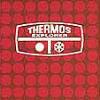 Thermos Explorer really shows Vicki Bennett‘s genius at sample-splicing, making a frequently hilarious collage of dismembered conversations, songs and noise workouts out of a diverse bunch of charity shop vinyl, radio phone in programmes and who knows what other sources. A piece like “Take A Walk” combines a jaunty, over-the-top and very English ditty from sometime in the technicolor past concerning the morning greetings to a postman from a presumed housewife with her uncanny ability to find samples of voices saying “People like us/you” and shoehorning them into apposite or ludicrous places. Similarly, “People Like You” does the same, except this time it’s an actual song of that title, twice over with saccharine feeling. Though it doesn’t appear here, even X-Men featured that particular line, so no doubt it’ll be cropping up on a People Like Us recording sometime soon.
Thermos Explorer really shows Vicki Bennett‘s genius at sample-splicing, making a frequently hilarious collage of dismembered conversations, songs and noise workouts out of a diverse bunch of charity shop vinyl, radio phone in programmes and who knows what other sources. A piece like “Take A Walk” combines a jaunty, over-the-top and very English ditty from sometime in the technicolor past concerning the morning greetings to a postman from a presumed housewife with her uncanny ability to find samples of voices saying “People like us/you” and shoehorning them into apposite or ludicrous places. Similarly, “People Like You” does the same, except this time it’s an actual song of that title, twice over with saccharine feeling. Though it doesn’t appear here, even X-Men featured that particular line, so no doubt it’ll be cropping up on a People Like Us recording sometime soon.
Some of the funniest snippets are the cut-ups of radio talk shows, which are pretty funny in themselves, but Bennett’s sampler makes a mockery of the banal and turns it into freeform profundities of everyday surrealism, making a caller apparently phone in from the Millennium Dome on the piece of the same name. A DJ sings along to “Nobody Does It Better”, a regurgitated song about lvoing you and me get a marvellous “Yumping Yumping Yiminy” chorus inserted. Honking rhythms, pitter-pat vinyl-loop percussion and half-familiar easy listening tunes and advert jingles intersperse themselves between descriptions of pear-shaped Cacciocavallo cheese appreciation (where the Soleilmoon sub-label got its name from, as it happens) and utterances like “Cream Crackers” or “Manchester” make interjections into bouncy xylophone cha-chas and comedy spring noises.
 Lassie House/Jumble Massive is a collection of two long-deleted vinyl-only releases via the aforementioned Cacciocavallo. It’s very similar in tone and content to Thermos Explorer, but perhaps with a crazier edge to proceedings, as oompah bands collide with woozy moans and old dears talk about how they imagine rave music puts people out of contol – probably due to the drugs or something. The mix is more concentrated somehow, with full-side length pieces oozing from one lurch jump cut banality to another, as “Hmmms” become rhythms and inane chuckles make a mockery of the airwaves. So much entangled apparent random-tuning (though the evidence of intent becomes apparent), yet more of those “People like us” samples, blasts of applause at apparent morinic musical interludes – it starts to make the brain rattle with the ghastly reaches of the totally ordinary made ludicrous.
Lassie House/Jumble Massive is a collection of two long-deleted vinyl-only releases via the aforementioned Cacciocavallo. It’s very similar in tone and content to Thermos Explorer, but perhaps with a crazier edge to proceedings, as oompah bands collide with woozy moans and old dears talk about how they imagine rave music puts people out of contol – probably due to the drugs or something. The mix is more concentrated somehow, with full-side length pieces oozing from one lurch jump cut banality to another, as “Hmmms” become rhythms and inane chuckles make a mockery of the airwaves. So much entangled apparent random-tuning (though the evidence of intent becomes apparent), yet more of those “People like us” samples, blasts of applause at apparent morinic musical interludes – it starts to make the brain rattle with the ghastly reaches of the totally ordinary made ludicrous.
Jumble Massive also features a great track title in the shape of “Acoustic Mud”, which about says it all in a nonsensical virtual radio play of surreal dimensions. The ringing phone and crosstalk of “A Crossed Line” smears those daytime radio and TV folk to the utmost lysrgic depths of echo and reverse effects until the walls seem to start melting by themslves. All this and astronauts making touchdown on a record groove makes for flashback stuff and no mistake – fast forward through a comedown on the sofa, grab a channel, flip to another, go quietly crazy to the juxtapositions of a record-buff quiz, the dulcet tones of Valerie Singleton and non-specific paranoiac Cold War skiffy warnings. There’s some jumpy orchestral cut’n’paste works too in “Sound Escape Parts 1-3”, which just goes over the edge of stuck-needle sampling and juddery cartoon noises until the ears metaphorically wobble. Dull old chirpy guitar twiddles become sinister skips, tap-dancing and Bontempi woozing mashed up by angry neighbours thumping at the walls, and Sooty And Sweep become emboiled in stereo test record shenanigans. After an hour or so of this kind of listening, nothing makes much sense any more – a nice quiet lie down away from the sound of confusion in action seems in order. Or maybe just set the CD to repeat and bask in the dizzying morass after all.
People like us indeed, but are we really so strange or is it more that the media’s longlasting campaign to generate the zeitgeist is so very odd? The plunderphonic method holds up a distorting mirror to the everyday audio soundscape and makes it lose focus before bringing things around to the point of laughing or crying at the horrendously familiar again. Absolutely maniacal with intent to amuse and unsettle, any of these records will make the dreary seem both more endurable and repulsive by dint of turning it inside out and into an unheimlich maze of aburdist folly.
-Antron S. Meister-
Pere Ubu – St Arkansas
Label: Glitterhouse Format: CD
 Ever since David Thomas took over production duties on 1994’s excellent Raygun Suitcase, subsequent Pere Ubu albums have undergone a remarkable renaissance of ideas and realisation. Like its predecessor, 1998’s Pennsylvania, St Arkansas is classic Ubu that easily stands against the best of their earlier output whilst retaining a character uniquely all its own.
Ever since David Thomas took over production duties on 1994’s excellent Raygun Suitcase, subsequent Pere Ubu albums have undergone a remarkable renaissance of ideas and realisation. Like its predecessor, 1998’s Pennsylvania, St Arkansas is classic Ubu that easily stands against the best of their earlier output whilst retaining a character uniquely all its own.
St Arkansas is the twelfth studio release from the band in their 27-year history. Original members David Thomas and guitarist Tom Herman are joined by Robert Wheeler on EML synth, theremin and piano, Michele Temple on bass and Steve Mehlman on drums. Late eighties era Ubu guitarist Jim Jones also makes a guest appearance.
Thomas’ notion that art exists both to encrypt and/or encode an agenda, is perfectly illustrated by this album’s distinctive sound. Since to expose the secret is to render the agenda impotent, St Arkansas succeeds by being instantly accessible whilst simultaneously maintaining its sense of surprise and mystery. Unexpected generic shifts occur from track to track and also within the space of a single song, lending the album a compelling strangeness that fades little with repeated play.
The driving bass and kettle-whistle theremin of “The Fevered Dream of Hernando Desoto” gives way to the loping, abstract Funk of “Slow Walking Daddy”. Michele erupts into a primal, industrial clatter of drums and squalling guitar that disappears into a cloud of ambient bubbles. “Hell” transforms Thomas into a Jazz singer relaying his metaphysical torment through the smoky veil of a seedy twilight nightclub. The doomy, synth-laden “Lisbon” sounds like the retro-futuristic end-of-the-world., whilst “Phone Home Jonah” is an obvious highlight – classic Garage-Rock with a touch of surf-inspired bass and a gloriously catchy chorus. Closing track “Dark” unfolds over nine minutes, a relentless journey into pitch-black night that manages to salvage a vague yet palpable feeling of hope as it builds to a crescendo.
Throughout the album, Robert Wheeler’s painterly brushstrokes of EML synthesizer and theremin sounds add an extra dimension to the songs. The perceptible hum and groan of vast machinery operating in the near distance, like the industrial ambience that accompanies David Lynch‘s Eraserhead, illustrates “Dark” perfectly. Elsewhere he conjures up Hawkwind-like whooshes of white-noise, the ghostly echoes of pinball machines and the zooming sound of engine and wheels eating up the distance on the highway.
David Thomas’ voice remains perhaps the most distinctive and unusual in avant-Rock, with only the likes of Robert Wyatt, Tom Waits or Captain Beefheart offering worthy points of comparison. His lyrics here offer a range of images, from offhand descriptions of signs glimpsed from the highway to perfect snapshots of places in time, beautifully and simply rendered in words that roll off the tongue. The point during “Slow Walking Daddy” where Thomas drops his voice from falsetto to a low whisper is particularly magical:
“And I saw stars
in strange constellations
trapped inside the blackness of neverending night
seen thru the pearly luminescence of shatterproof glass
framed by the wrong side of green valour
and maybe it felt like home…
maybe for a little while”
St Arkansas is a triumph from start to finish. My only reservation is that at 42 minutes it just doesn’t seem long enough, following on from the epic 70 minutes of its two predecessors. Still, with David Thomas’ extensive touring with Two Pale Boys and The Pale Orchestra, as well as a string of outstanding non-Ubu releases and his current 11-week stint in junk-Opera Shockheaded Peter, it would be churlish indeed to complain.
-Sean Kitching-
Alexander Perls – Storm EP
Label: Monopsone Format: CDS
One half of Icebreaker (International), this debut solo release from Alexander Perls glitters with a patina of shiny synthesized Electro grooving which brings an instant uplift to any sound system. With vocal utterances from Sarona providing a choral frisson, the title track bounces brightly with motorway efficiency and a sure sense that all is right with the world, especially if you’re driving by; but in a zero-emission electric car, naturally, as no mucky petrol engine could be as smooth and luxurious as the dynamic electronics as here. The same drum machine brightness perks up a gear for “The Drive”, as analogue synths sprinkle the air with joyous liquidity while Sarona keeps the air moving to lilting, wordless breaths of happiness incarnate. Mr Perl’s guitar is simple and sprightly, while the melodious keyboards which flit from speaker to speaker match the sense of cheeriness perfectly.
“Recombination” continues the mood to yet livlier bass-touched structures, though the mood has slipped into one of reflective swirling on the now-familiar theme, spruced up with some chunky Michael Rother-isms as “Maximalist” opens up the throttle to a four-four arm-waving stomp. Dripping with lovely synth shivers and arpeggiations, it’s at this point the EP reaches a peak at its danceabilty moment. The guitar motif comes around again with a virtual violin drawing in Sarah Robbins‘ vocal for “Can’t Be Sure” – and unfortunately this is where The Storm reaches for the Pop point of acceptable vocal depth while instead ending up destined for the afternoon schmaltzalong slot. Still, there’s a chord or two to pull the emotional strings so hard as to almost unseat the listener, if only for a second, and as works of happy Electro positivity go, this EP is highly assured and suitably addictive.
-Freq1C-
Lee Perry – Produced and Directed by The Upsetter
Label: Pressure Sounds Format: CD,LP
Picking up where last year’s Voodooism collection left off, Produced and Directed collects together further Seventies productions from The Upsetter himself, complete with the vital B-side dub versions. The vocal sides feature such names as King Burnett, Eaton Clarke and The Heptones, but it’s the dubs which really allow Perry to shine as producer, showcasing his love of echo and drop out. Highlight of the album comes with the final track and its dub version, Junior Murvin’s “Philistines On The Land,” which uses the rhythm of the lyricist and producer’s best-known cut “Police And Thieves” as the basis for a supremely hearfelt, soulful plea for nuclear disarmament.
This and other Pressure Sounds releases re-affirm the revolutionary Seventies production sprirt that emerged from Jamaica in the Seventies, just as happened in Germany with the likes of Can, whose own producer (if not director) Holger Czukay is a well-known fan of Perry’s dub techniques. This is a fascinating collection of Perry’s most creative era, before the eccentric vocalising which has marked much of his recent work (if not always for the better), and is a highly commendable step in the presentation of long-lost recordings to a generation perhaps over-familiarised with the digital re-interpretations of dub which have their roots in pioneering works such as these.
-Antron S. Meister-
Patrick Phelan – Parlor
Label: Jagjaguwar Format:
 I love Patrick Phelan, or at least, I love his albums. Last year’s release, Songs of Patrick Phelan, was easily one of my top five albums of the year – the perfect soundtrack to a long, cold winter- and this, his follow-up, is just as good. Phelan’s voice melds beautifully with electronic washes and wonderfully amplified, acoustic-sounding guitar, making these songs fall somewhere between pure Folk and almost Ambient music, with forays into some classy-sounding Jazz and even a little Calypso. It’s an engaging enough disc that it won’t put you to sleep by any means – it’s a little too melancholic to inspire sweet dreams – but it’s definitely soothing stuff.
I love Patrick Phelan, or at least, I love his albums. Last year’s release, Songs of Patrick Phelan, was easily one of my top five albums of the year – the perfect soundtrack to a long, cold winter- and this, his follow-up, is just as good. Phelan’s voice melds beautifully with electronic washes and wonderfully amplified, acoustic-sounding guitar, making these songs fall somewhere between pure Folk and almost Ambient music, with forays into some classy-sounding Jazz and even a little Calypso. It’s an engaging enough disc that it won’t put you to sleep by any means – it’s a little too melancholic to inspire sweet dreams – but it’s definitely soothing stuff.
-Holly Day-
Physics – 2.7.98
Label: Gold Standard Laboratories Format: CD
Tones repeated on synthesizer and guitar and drums. How much mindfulness is involved in the trance state? What changes can be made within it that involve stepping outside of the state of mind? There is a rise and fall to it all – gradual and insidious. Voices drift in and out of the recording – knowing? And what is the criteria for ending a piece that travels in a straight line? At low levels, it makes for very nice fuck music – but whither goeth the “fuck books”? It reaches a slow exit, and moves softly through the rushes of voices into the next piece…
…Which percolates on synthesizer and guitar inTO something…drums chasing guitar breathlessly as synthesizer glides overhead – cloudlike and shadowing the action beneath and around it. Jabs to metal come as a surprise; a curl of feedback swivels again and again behind the continued momentum. If only I knew the notes to which I could anthropomorphosize! Climax and slowing, climax and slowing; until the notes die off into the embers of that night, that night…
-David Cotner-
Piano Magic – Low Birth Weight
Label: Rocketgirl Format: CD
There is a trend in popular culture of assimilating previously underground genres into the mainstream. Musicians such as Mercury Rev, Beck, or Spiritualized soldiered on for years layering strange noises, rushy guitar sounds and drug-induced vocals before finally hitting the big time with refined, MTV-friendly versions of their original sound.
Into this arena comes the timely release of Piano Magic‘s second LP Low Birth Weight. The group are a London-based collective formed by Glen Johnson in 1993 and containing many ex-members of obscure indie bands on obscure indie labels. Their sound is enhanced by their technique of swapping vocalists and musicians around for each track, and the album is saved from sounding like an obscure indie compilation by Johnson’s creative control. Musically the album comprises all the expected tenets of the genre – guitars seemingly played on deserted beaches, keyboards from the kindergarten, deadpan female vocals; tuneless male ones, and interesting rhythms which abruptly fuse into layers of unidentified flying sounds. However, the production is disappointingly conventional, perhaps anticipating radio airplay.
Strangely, although the album is occasionally interesting and diverse, for me it’s actually let down by the competent and controlled playing from the musicians. The passion, imagination, energy and humour of comparable groups such as Flying Saucer Attack, the entire K Records roster or early Ween is replaced by a restrained, contrived lo-fi by numbers. Gone is the tape-hiss, lack of technical brilliance and the obvious joy and enthusiasm which has helped define a genre (and accounted for its lack of mainstream popularity). Piano Magic remind me more of the weeks I spent ill in bed as a child than fuelling any desire for a musical revolution. It is their accessability and lack of authentic experimentation which ultimately places Low Birth Weight outside the genre which it attempts to be part of.
-Kanchi W-
Pigface – The Best Of Pigface
Label: Invisible Format: 2CD
 This double-CD set comes across the only way a “best of Pigface” collection ever could: as a disparate collection of songs that sound like they come from just as many bands as there are tracks on the album. The reason for this is simple – Pigface isn’t really a band. It’s a collective loosely governed by Martkin Atkins, a collective of musicians that come and go with each new record that has included Jello Biafra, David Yow, Dean Ween, Mark Spyby, Flea, Atsuko Yamano, Scott Watanabe, Beef from Gwar, Becky from Lunachicks, Meg Lee Chin, Genesis P-Orridge, Leslie Rankine, most of the members of Skinny Puppy, Steve Albini, The Evil Mothers, Taime Downe, and, more than likely, anybody who happens to wander into the studio at the right time. The result is a collection of songs that ranges from dance music to heavy scary Industrial, spoken word, Art Rock, and just about anything else except straight, acoustic Folk music.
This double-CD set comes across the only way a “best of Pigface” collection ever could: as a disparate collection of songs that sound like they come from just as many bands as there are tracks on the album. The reason for this is simple – Pigface isn’t really a band. It’s a collective loosely governed by Martkin Atkins, a collective of musicians that come and go with each new record that has included Jello Biafra, David Yow, Dean Ween, Mark Spyby, Flea, Atsuko Yamano, Scott Watanabe, Beef from Gwar, Becky from Lunachicks, Meg Lee Chin, Genesis P-Orridge, Leslie Rankine, most of the members of Skinny Puppy, Steve Albini, The Evil Mothers, Taime Downe, and, more than likely, anybody who happens to wander into the studio at the right time. The result is a collection of songs that ranges from dance music to heavy scary Industrial, spoken word, Art Rock, and just about anything else except straight, acoustic Folk music.
-Holly Day-
P.I.M.P. – The Light
Label: Future Groove Format: 12″
The unworldly Techno voice that said “Look into the light, it will not hurt you” originally hit the dance floors in 1994 and became an underground classic. Now that’s practically the days of Joey Beltram‘s genre-defining “Energy Flash” and “Mentasm”. “The Light” has all the late night charm you’d expect, the focus firmly on the dance floor, the insistent stabbing synth line driving you on … ah, they don’t make Techno like that any more … but they do rerelease it.
Eight years on and “The Light” is back in all its old school Techno glory. Future Groove‘s release sees the original mix by Jamez and HP Vince accompanied with mixes by Robbie Rivera, A.T.T., and DJ Vibe. Robbie Rivera’s “Big Pimping” mix puts “The Light” firmly back in the dance floor. It’s got the makings of a thumping club anthem. A.T.T.’s mix of Dub and punching beats sounds like it’s transmitted from the same narcotic planet that the voice comes from, while DJ Vibe’s mix builds up into a serious head rush.
-K Diamond-
Pineal Ventana – Axes To Ice
Label: Unit Circle Format: CD
 While I really do love this band, I have to say that this follow-up to their last record, Malpractice, also on Unit Circle, is a lot tamer than what I’ve come to expect from Pineal Ventana. The music is still noisy and raw, but instead of the fabulous angry screaming and wild horn-torturing that earmarked their first album, the music actually comes across as almost synchronized, and the vocals come across more as singing than anything else. I suppose this may make the band more listener-friendly to a general audience, but those of us who crave intense cacophony and madness in our music, it’s a bit of a let-down.
While I really do love this band, I have to say that this follow-up to their last record, Malpractice, also on Unit Circle, is a lot tamer than what I’ve come to expect from Pineal Ventana. The music is still noisy and raw, but instead of the fabulous angry screaming and wild horn-torturing that earmarked their first album, the music actually comes across as almost synchronized, and the vocals come across more as singing than anything else. I suppose this may make the band more listener-friendly to a general audience, but those of us who crave intense cacophony and madness in our music, it’s a bit of a let-down.
-Holly Day-
Johhny Pinkhouse – Presents Bad Acetate
Label: Soleilmoon Format: CD
Subtitled 1949-1999 – Fifty Fabulous Years in the Soleilmoon Lounge, label founder Seymour Crouchly‘s grandson presents highlights from the label’s long history as their hundreth release. Or not.
If Soleilmoon are to believed, they started out selling sound FX for industrial safety films and hence invented the Industrial genre by accident. Hmmm. Then they got into perfecting the “car screech and crash” for Hollywood, until their rivals at Ash International [R.I.P.] were suspected of burning down their studios in 1977. And now, the man who restarted the label in 1988, Johnny Pinkhouse, has recovered the remains of the first incarnation of the label’s archive from his attic to present in this collection. What a treasure trove it is too! Hissy, scratchy jokes, blurring into echoed recountings of random snatches of conversations, songs and party pieces from a bygone era (including the 1949 employee’s Xmas party, apparently), slammed into each other like so much hypnotic wallpaper. What are they talking about? The digestive problems of port wine; obsure, idiocentric prayers for food; chucklings and arguments, alarming childish burblings and whining, to select at random.
It’s like listening to the ghosts of radio and home-taping experiemtns slopped into a hard disc and retaped into loops, fragments and sped up into hiccuping lunacy. Disorienting, puzzling, funny. What more could you ask from a label like Soleilmoon? Forty-three tracks of obscurely-fascinating overheard speech, then a final brief descent into raucously-garbled noise. Just the thing to liven up the party season, perfect with a cocktail or ten, goes down easily in a crowd…
-Linus Tossio-
Plaid – Rest Proof Clockwork
Label: Warp Format: CD,2LP
Ex-Black Doggers Plaid are back with a new album that sees them trying to shake off that “difficult” tag. Sure, it’s still experimental (whatever the fuck that means) but it’s a lot more (Warning, I am about to use a horrible muso journalist term) accessible (cool, I think I just about got away with it – just wait until I hit ’em with “pop sensibilities”) – like, tunes and stuff that are actually quite catchy despite being for the large part composed of weird noises. Opener “Shackbu” sets the tone – a nice little futuristic Lounge number which eventually includes among its sonic vocabulary what sounds like a troop (or is that “troupe”?) of scratching midgets.
On the subject of midgets, “Little People” also begins with scratching and has a nice chunky bass all over the proceedings. It’s like an Electro revival spearheaded by computer scientists with a fondness for reversed cymbals. The wonderfully-titled “New Bass Hippo” brings an Easy Listening dimension to an almost Aphex-y set of sounds before mutating into a jaunty (yes, jaunty) piece of lounge-Funk with an insistently cheeky bassline that one can only assume is being played by a hippopotamus. Possibly. Oh, and some bells, too (Is the hippo playing them? – Ed.).
So, I guess the way to describe this muscally would have to involve the word “bouncy.” Always shimmying along the thin line between experimental and cheesy (and yes, it is a thin line – you go up to irony and turn left) they seem determined to prove that “Avant Garde,” whatever the fuck it may actually mean, does not have to equal dark and discordant. To which I would have to add that “fun” doesn’t have to be tame. And dead men don’t wear it.
-Deuteronemu 90210, Dark Lord Of The Sith-
Plastikman – Consumed
Label: NovaMute Format: 3×12″, CD
I do love triple vinyl, and this one excudes plasticity. One of the blokes in Plastic Surgery (Maidstone – great shop by the way [So it would seem – Ed.]) thought this was the logical progression for Ritchie Hawtin. I see no need to argue here. “Substance Abuse” is a storming track, but this kind of dark minimal ambeince feels right. After all Ritchie is so good at it. “11:96” was perhaps too minimal, its great with a set of decks and a Stockhausen record to mix it with, utterly unlistenable without. Consumed has more of an analogue feel with serious echo, and it moves at less than 1 mp/h.
Let me illustrate: the day I got my hands on Consumed I was on a bit of a mission in Maidstone; I wound up home somewhat lashed up with beer. After a stiff coffee one instinct remained, slap it on the turntable and take it for a while. In this drunk state I thought it sounded about right at 45 rpm, but oh no no, its at 33 rpm. Its a slow, slow record. The overall effect is like tripping your nut off in a giant cargo hold in an even more gigantic space craft. You`re glued to one end of the hold, the music’s coming from the other – apart from the bass which is using your chest as a bass bin. It’s epic techno that needs epic metaphors to describe it, otherwise I`d just be left saying the tracks go on for eight minutes and apart from echo knob twidling don`t really do much. Its true, but doesn`t do Consumed justice.
Ritchie has a knack of making Techno that goes straight for the nervous system, and this record will have you pinned back against the wall (without needing to resort to brute force), your brains dribbling out of your ears. Ok, I think I`ve said I like it enough. There’s no compromise on the miminalism front: if you don`t like minimalism don`t buy it. I also think it may work best in a mix – don`t know if Ritchie intended for it to be this way, it just doesn`t strike me as listening music. But lets face it, if you`re into Techno, minimalism isn`t really likely to be a sore point, is it?
– Alaric Pether-
Hans Platzgumer – Datacard
Label: Seperator/Disko B Format: CD
 Eight abstracted Drum & Bass excursions making a continuous whole from Hans Platzgumer, with one interruption by Hecker for variety’s sake. Datacard sometimes trips along at breakneck speed, but given that this is a work from one of the foremost breakbeat abusers in Europe, the linearity gets messed up somewhat. There are occasional analogue synth samples which hang almost motionless in the sequence, repeating themslves with hardly any variation, at least on “Hedonist Nightmare”; but such simple things don’t last. Darkness reigns supreme often enough, with the bass gratifyingly tearing or booming at the right junctures, as track titles like “Terrifier” and “Boogieman” would indicate, while “H” stutters into several stretches of interlocked cyclical rhythm and hideously effected digital keyboard trills of unsettling brightness.
Eight abstracted Drum & Bass excursions making a continuous whole from Hans Platzgumer, with one interruption by Hecker for variety’s sake. Datacard sometimes trips along at breakneck speed, but given that this is a work from one of the foremost breakbeat abusers in Europe, the linearity gets messed up somewhat. There are occasional analogue synth samples which hang almost motionless in the sequence, repeating themslves with hardly any variation, at least on “Hedonist Nightmare”; but such simple things don’t last. Darkness reigns supreme often enough, with the bass gratifyingly tearing or booming at the right junctures, as track titles like “Terrifier” and “Boogieman” would indicate, while “H” stutters into several stretches of interlocked cyclical rhythm and hideously effected digital keyboard trills of unsettling brightness.
The images “Weather Report” could conjure are largely disabused – it’s not quite as Jazz-Fusion as the title might be assumed to indicate, though it does stumble along erratically enough in its own way on a barrage of distended cymbals and scissored-hihats. This could loosely be called Jazz; just much more fucked-over, Squarepusher-like, until the goatees tremble. “Journey” notches down the beats in favour of swirling monster bass and echo effects in ominous style, and the aforementioned Hecker remix “llall.04875.abrr” is as abstracted as would be imagined from him, snipping rhythms and splicing beats into a glitchy anti-song structure of defaced loops and crackly blips.
What’s especially nice about the sound on this album are the dirty production values – it sfeels like the raw tracks were pushed though a blender, or at leats all the plugins the sequencer could handle, plus a few old effects units for good measure. Datacard has much to recommend it; the bruising bass kicks are groovy but splattered; somewhere in the mix is an interview with footballer George Best (for who knows what reason); and there’s even an emergent post-Moroder song (including some lyrics, already) in twitchy Motorik-Electro style to close the proceedings in a welter of rapid-fire rimshot snaps, squittery keyboard stabs and off-center burbles. All this and a video of this track (“Stamp”) too combine to make CD this a nicely varied bundle of lateral breakbeat sparks and more.
-Freq1C-
Hans Platzgumer – Denial Of Service
Label: Seperator/Disko B (CD) Heimelektro Ulm (2LP) Format: CD,2LP
 Dedicated to “the greatness and inspiration of 1979s Jazz Rock”, Denial Of Service, fortunately or otherwise, doesn’t actually sound much like such much-mocked Prog stalwarts as Focus or Magma. This is a strangely-propelled album, setting out a highly individual modern take on an often glutinously overblown format and making it shudder and twitch, though with an apparent love for the genre too. Its tightly-controlled rhythms and basslines have strayed far away from the smug smoothness or muso cleverness so often found in such digital interpretations of the Hyper-modern Jazz form typified by, say, Reprazent or Squarepusher. Instead, Denial Of Service strips matters down and rebuilds them afresh, with a mischievous gleam of iconoclasm rendered into the mix.
Dedicated to “the greatness and inspiration of 1979s Jazz Rock”, Denial Of Service, fortunately or otherwise, doesn’t actually sound much like such much-mocked Prog stalwarts as Focus or Magma. This is a strangely-propelled album, setting out a highly individual modern take on an often glutinously overblown format and making it shudder and twitch, though with an apparent love for the genre too. Its tightly-controlled rhythms and basslines have strayed far away from the smug smoothness or muso cleverness so often found in such digital interpretations of the Hyper-modern Jazz form typified by, say, Reprazent or Squarepusher. Instead, Denial Of Service strips matters down and rebuilds them afresh, with a mischievous gleam of iconoclasm rendered into the mix.
Hans Platzgumer is often more interested in creating texture among the mix of real and digital instruments, swerving from the moody atmospheres of “Stanned”, where slowly-unwound electronics rise side by side with crisp drums and some hazy FX. Where there are vocals provided by Anne LaPlantine or Catriona Shaw on the elided ghostly echoes “Stay Onlife” and the clattery-Funky “Jazy” respectively, their appearance as cut-up instrument or straightforward singer blurs distinctions and shifts moods in the first section quite neatly. “Stay Onlife” in particular holds a certain unsettling charm in the interplay of fragmented words and the equally stuttering rhythm section among the wandering abstract tones and feedback wind.
The Jazz Rock influence comes to the fore on “Soulfile 01”, where the easy filtered bass and drum groove is soon joined by an eccentric Rhodes before taking off into more dementedly randomized explorations of the form, where the emphasis seems to be one crazy dissociative delves into the sound and tempo. By the time the track concludes, the sounds and rhythm have become so abstracted as to be not easily recognizable from the beginning, uncoiling back down to the drone of the electric piano and a muted urgency on the part of the drums. A piece like “Connected Strage” would also be most suitable for backing up an Avant-Rapper, while the chilled Electro drums and shuddery bass walk of “The Gambler” features some twisted Noirish digital brass arrangements. With fleeting glimpses into sampled soundbites which provide the title, breakbeats emerge from the gloom before winding back down into a ticking rhythmic substrata as “Grrm” to conclude the album proper in a welter of multitracked percussion and a heady electrified whirl of what is effectively a drum solo. Swarming with digital sparks, the rhythms soon tranmogrify into thunderously Funky Techno, bleeps and all, before a shimmering fade and a search for Georg Gaigl‘s video for the Hecker collaboration “Llal.4875.abrr*” from Datacard on the CDROM section of the CD edition.
-Antron S. Meister-
Plexiq – 20000
Label: Clearspot Format: CD,LP
 Nostalgia may not be what it used to be, but it’s certainly big business right now. I Love… (insert ridiculously recent year here) on TV, and Hey! It’s the Eighties all over again! And all I can say is, thank fuck everyone’s stopped thinking it’s the Seventies. Speaking as a Synthpop/New Romantic fan from way back when I was just about old enough to steal my older sister’s records, this is A Good Thing. Sure, it’ll piss me off eventually, but by then they’ll be reminiscing about the Nineties. What do you mean, they already are? Jesus. Time flies when you’re having ideas for Saturday night TV, don’t it? So to this, Plexiq‘s 20000, an unashamedly Futurist look back at Eighties Synthpop (yeah, I know, it’s like one of those fucked-up Grant Morrison comics where everyone’s from a different timestream and you’re trying to judge – from their dialogue alone – what actually happened in that issue you missed) which is actually very good. Kind of Depeche Mode, New Order-style backbeats and synth washes, with sort of Karl Hyde-out-of-Underworld vocals. There’s something a little more playful to a lot of the arrangements than the above would suggest, though – I mean, it doesn’t sound like Yello, but you know the way they did groundbreaking music while not taking it seriously at all, kind of like Art Of Noise without the pretension? (and no, this isn’t quite in the same league as either of those bands, but then, so much isn’t that you can’t really blame them for it. For fuck’s sake, it’s just an analogy, okay? just go with it). Much as the vocals sound all machine-serious, kind of Berlin-era Bowie (if he’d actually been Phil Oakey in disguise) in a tin box, the basslines and such seem determined to have fun despite him, making for quite a manic combination – funnily enough, it’s the vocals that have that machine purity, while the electronics sound more organic and fucked-up.
Nostalgia may not be what it used to be, but it’s certainly big business right now. I Love… (insert ridiculously recent year here) on TV, and Hey! It’s the Eighties all over again! And all I can say is, thank fuck everyone’s stopped thinking it’s the Seventies. Speaking as a Synthpop/New Romantic fan from way back when I was just about old enough to steal my older sister’s records, this is A Good Thing. Sure, it’ll piss me off eventually, but by then they’ll be reminiscing about the Nineties. What do you mean, they already are? Jesus. Time flies when you’re having ideas for Saturday night TV, don’t it? So to this, Plexiq‘s 20000, an unashamedly Futurist look back at Eighties Synthpop (yeah, I know, it’s like one of those fucked-up Grant Morrison comics where everyone’s from a different timestream and you’re trying to judge – from their dialogue alone – what actually happened in that issue you missed) which is actually very good. Kind of Depeche Mode, New Order-style backbeats and synth washes, with sort of Karl Hyde-out-of-Underworld vocals. There’s something a little more playful to a lot of the arrangements than the above would suggest, though – I mean, it doesn’t sound like Yello, but you know the way they did groundbreaking music while not taking it seriously at all, kind of like Art Of Noise without the pretension? (and no, this isn’t quite in the same league as either of those bands, but then, so much isn’t that you can’t really blame them for it. For fuck’s sake, it’s just an analogy, okay? just go with it). Much as the vocals sound all machine-serious, kind of Berlin-era Bowie (if he’d actually been Phil Oakey in disguise) in a tin box, the basslines and such seem determined to have fun despite him, making for quite a manic combination – funnily enough, it’s the vocals that have that machine purity, while the electronics sound more organic and fucked-up.
Overall, it’s really quite good, and does seem to manage its (presumed) intention of dragging ’80s Synthpop into the Twenty-First century and introducing it to HipHop, retro-Funk (see, it’s those tangled timelines again) and Techno. It’s a little reminiscent of Japanese videogame music (in a less annoying way) where you’re like “is this more influenced by Yellow Magic Orchestra, Kraftwerk or that thing I saw the other day on the Cartoon Network?” Only it’s a fuck sight less annoying. By the way, when they inevitably do “I Love Tuesday just gone” (at the time of writing, natch) could someone please tell me, ‘cos I missed Lexx this week.
-Deuteronemu 90210 reminiscing about his favourite board games from when he was a kid-
Plexus – Plexus
Label: Mother West Format: CD
 With their sound honed during a year’s residency at New York’s Izzy Bar and extensive live tours on America’s East coasts, Plexus’ focus is on one of those feats of musicianship which the band make appear deceptively easy – playing live Drum & Bass. Where other practitioners such as the sometimes less than engaging Reprazent have dissilved into smooth dinner-Jazz fusions, the trio of Allen Towbin (guitars and electronics), Ernie Adzentoivich (bass) and drummer Tobias Ralph are more often content to keep things frenetic and dancefloor-friendly.
With their sound honed during a year’s residency at New York’s Izzy Bar and extensive live tours on America’s East coasts, Plexus’ focus is on one of those feats of musicianship which the band make appear deceptively easy – playing live Drum & Bass. Where other practitioners such as the sometimes less than engaging Reprazent have dissilved into smooth dinner-Jazz fusions, the trio of Allen Towbin (guitars and electronics), Ernie Adzentoivich (bass) and drummer Tobias Ralph are more often content to keep things frenetic and dancefloor-friendly.
It is a little easy to forget that Ralph’s drumming is live – he can knock out the hyperspeed rhythms with all the overclocked BPMs of an Akai breakbeat mincer as the opening curlicues of “Plexus 2001” proves. He’s no slouch in conjunction with Adzentoivich when taking matters downbeat as on the Dubby “Asia Minor”, which bears comparison with those other live electronic spacehead groovers Eat Static
in it’s use of spaced-out breaks mixed with aetherial keening and some fruitily-patched synthification. A gurgling remix from Tube takes the tune into the realms of swirling metallics with a churning rhythmic makeover with an upbeat Techno twist. “Chant” mashes up a vocal sample from Jubei to mellifluous, processed Ambience with a surging undertow of well-judged motion and poised downtempo bass breaks to rumble and writhe all around. As the wordless voice dissolves audibly into stuttery electronic abstraction, it is entirely to Plexus’ credit that they flip the trip switch without taking the kitch route.
How much of the album is programmed in comparison to their live set is somewhat of a moot point – there is a sufficiently free-flowing property to the music which makes everything jig along with a welcome dynamism. The band also show their interests stretch to Modern composition in association with Professor Ran Blake
, who contributes some controlled piano figures to “Telephone Noir”, Avant-style. Plexus set about their breakbeat business to increasingly liquified sampled string accompaniment with results which call the explorations of Spring Heel Jack immediately to mind – only with a better balance of the rhythmic and melodic elements. Elesewhere, there are further thoughtful stretches of slow piano ambience and smokey Jazz saxophony on a track like “Inner Space”, which treads a fine line between noodling and pulsating electronic energy, and is a tad unconvincing until the Drum & Bass passion kicks in for real.
Minor caveats aside, Plexus shows that the live interactions of breakbeat science and a background in Jazz Improvisation needent lead to an excess of chin-stroking self-satisfaction. On the contrary, the band keep the blend pitched at about the right level of both cleverness and floor-shaking for the bulk of the record. Now to see them live…
-Antron S. Meister-
James Plotkin/Pimmon – Split
Label: FatCat Format: 12″
James Plotkin was once slotted into the mid-Nineties Isolationist (non-)movement thanks to his diverse guitar strechings, shimmerings, deconstructions and removals. Here he explicitly names the process which was probed at earlier “Forensics For Guitar”, and over three parts slices, dissects and examines the results of deracinated amplified strings’n’plank technology.
What results is textural and evocative – not of wankery with foot on the monitor, but of places under the surface of the instrumant. Legions of guitarists have abandoned the chord for the microscopic tweaking of tones and tailing frizzles; Plotkin’s stand well in the ranks thanks to his wealth of experience. As ever, for the proper listening experience – and this is all about listening – slide that volume control around to the higher reaches. The delay pedal makes arpeggiations seem all rather muso – intead Plotkin offers a creschendo of accreted assault on the instrument, as well as lighter pinches and flicks of the bridge and nut. That and a run off the tape loops and a pleasantly unpleasant gurgle of tectonic shuffling closes proceedings in harrumphing form.
Paul Gough‘s side of the bargain is taken from the heart of his computer, into which was fed the sounds of romantic balladry and fluttering love from a series of 78rpm vinyl, tape loops and then shunted out onto analogue tape. The returned results are slippery high pitches, snuffling huffs of noise, warbling iciness bereft of obvious passion on “Fictitious Cells” – glitches washed in aspic. “Better Kempt” sets its mandibles into the crunchy, crackly parts of sounds, flavoured with subsurface crepitations and wheezes before extracting some tasty hisses and arrythmic lopes.
Those sugary love moments are somewhat more apparent in “Serenade Sedan”, as strings are sections and elongated into drones and a choral miamsa of noise takes things into an almost ethereal zone. Almost, because there’s plenty of dissonance and digital detritus waiting in the wings to clip the wings of love – unless the love of noises for their own sake counts. Boom-boom goes the heart, as does the track into a slippage of gently fading feedback.
-Freq1C-
Ego Plum – Anthology Of Infection Volume Two
Label: Ebola Music Format: CD
 I have to start this out by stating, for the record, that I am a huge Ego Plum fan. Ego Plum’s music is an off-kilter combination of scary circus music and instrumental, hypnotic electronic Pop, taking listeners on a strange and magical adventure to a world where clowns and cannibalism and freaks and fetishes do more than sit close to one another in the dictionary. These songs are enchanting, invoking images of cartoon penguins ice skating one minute, and the midget strippers that appear on stage with Plum during his live shows the next. Somber and playful and inherently terrifying all at once, it won’t take long before you find yourself humming these songs on the bus against your will.
I have to start this out by stating, for the record, that I am a huge Ego Plum fan. Ego Plum’s music is an off-kilter combination of scary circus music and instrumental, hypnotic electronic Pop, taking listeners on a strange and magical adventure to a world where clowns and cannibalism and freaks and fetishes do more than sit close to one another in the dictionary. These songs are enchanting, invoking images of cartoon penguins ice skating one minute, and the midget strippers that appear on stage with Plum during his live shows the next. Somber and playful and inherently terrifying all at once, it won’t take long before you find yourself humming these songs on the bus against your will.
-Holly Day-
Pole – Pole
Label: Mute Format: CD,LP
 The addition of rapper Fat Jon to the formerly solo Pole sound on this latst release from Stefan Betke is at once problematic and beneficial. On the downside, while at Jon’s lyrics are entirely suited to the stripped back, hip-hopped version of the glitch-dub sound for which Pole has become almost a byword in the last half-decade, the results drift easily into the realms of slowly-nodding ambience where engagment becomes a subconscious event at best, or slips nicely and blandly between the ears without sticking too long on the cerebellum.
The addition of rapper Fat Jon to the formerly solo Pole sound on this latst release from Stefan Betke is at once problematic and beneficial. On the downside, while at Jon’s lyrics are entirely suited to the stripped back, hip-hopped version of the glitch-dub sound for which Pole has become almost a byword in the last half-decade, the results drift easily into the realms of slowly-nodding ambience where engagment becomes a subconscious event at best, or slips nicely and blandly between the ears without sticking too long on the cerebellum.
Add in some wriggly saxophone from Thomas Haas to twinkly, stepping Dub minimalism of “Bushes” or the yet more Rootsy “Green Is Not Green-yellow”, and the brew gains some strength, but again at the risk of becoming somewhat tepid, possibly even generic, in the process; occasionally it’s a fine line between relaxation and langorous boredom being run here, and fortunately it’s not crossed too often onto the latter side. However, there’s no denying that the vocals, where present, certainly alter the apparently formulaic sound quite radically – and for anyone desperate to fall back on familiar ground, the shifts in texture and rhythm on a piece such as “Umbrella (Version)” are distinct but entirely in keeping with the sound while allowing room for it to breathe and expand. Precise constructions of glitch and filtered beat skank gracefully to a warm-hearted mechanical groove, and the gradually-evolving development of extraneous interjections in the shape of melodica trills and delicate electronic chirrups actually feels like a transformative level in that instantly-recognisable sound has been achieved. There is no clearer example than on the urgent scurryings and fractured loops of “Like Rain (But Different)”, as stuttering Dub becomes a clockwork microsound collision with the jerky residue of virtual vinyl scratching.
All caveats aside, Pole is still worth delving into, just not in the same way as Betke’s previous instrumental works have been – the impression is of a slumberer awoken, stirred by the dancehall churn of a track like the vocal version of “Round Two” into urgent communication of a dream, Fat Jon letting out a steady flow words like he needs the listener to know exactly where he’s coming from. The observational storytelling of “The Bell” ripples with a musical and poetic alienation which is more disturbing than at first the slow bass rhythm would make it seem, a nagging clatter of sticks causing an underlying feeling of nervous displacement appropriate to the half-wasted lives described. At these moments, when Betke slips gracefully into the background, providing a firm grounding for the stories and ideas, what at first seems an unusual and possibly even disposable collaboration reveals itself to be worthy of closer attention.Ultimately, with Pole, what was once an assuredly comfortable sound has acquired a less easy edge along the way.
-Richard Fontenoy-
Pole – 1
Label: KiffSM/PIAS Format: CD, 2LP
Operating somewhere in the same arenas as not only Oval (though busier) and Plastikman,(though dubbier) but somehow Main too, Stefan Betke has the history to fit the sounds he squeezes from his analogue Waldorf 4 Pole Filter (hence the name). As an employee of the Dubplates and Mastering studio in Berlin, Betke has obviously recorded and absorbed a large residue of minimalist Techno, channelling the result into a couple of singles, some of which tracks turn up on CD1 (which is quite perversely available on vinyl too).
As the basis of these tracks was largely experimental in the sense of empirical knob-twiddling, it’s quite a feat that has been achieved, in as much as the album never outstays its welcome for a moment. This is despite the Minimalist, slowly changing rhythms, and is perhaps due in great part to the dubbing of echoes, filters and layered glitch-processing over the skeletal framwork. Reflective rather than absorbent, the textures of Pole’s music are amorphous and shift in subtle ways, allowing it to be both abstractly ambient, or at high volume, immersive and glutinous. With its Digital Dub stepped down several gears and melted sideways from the weed skank to an acid analysis of the minute details, CD1 warms the atmosphere and relaxes the way a warm, bubbly bath does – gently, and with no end of deliquescing foam.
-Freq1C-
Pole – Pole 2
Label: KiffSM/PIAS Format: CD, Mini-LP
Simply, elegantly, smoothly vibrating with an electronic Dub pulse, Stefan Betke‘s second album based aound his favourite Waldorf Pole-Filter expands on the languid warmth of CD1 with all the comforting bass slides and enlivening scratchy speckles of that album, but more so. As with the great Dub scientists of Kingston and London of the Seventies, Betke takes the barest minimum of sound sources and through the application of echo, delay and cross-fader builds a magically-enhanced web of rhythm and drop-out skank. It’s as if the oldest dubplate from Studio One, popping grooves and all, had found its way into the hands of a kindred spirit from Berlin and been given a new lease of life on the digtal mixing desk.
That Pole 2 isn’t a construction of sampled records at heart is evident from the springy echoes of bass, the squeaky fragments of surface noise and aural detritus – even if it was, it would still work on the most important levels of heart-massaging sound frequencies and brain-friendly complexity. This is the sort of record which can be both relaxing and stimulating at the same time, layering and counterpointing tape-hiss with attenuated virtual rimshots around the ever-present low-end, drumless groove. It’s also a credit to Betke’s compositional skills that six tracks lasting less than thirty-four minutes in total stretch the listening time into highly non-linear plasticity, and could easily spend all day on repeat play, soothing, massaging and relaxing the over-stimulated urban mind with the sound of the ever-present machine quietly nodding off.
-Freq1C-
Pole – 3
Label: KiffSM/PIAS Format: CD,LP
 Three albums on, and Stefan Betke has gone more Dub than ever, rolling along on a coasting tinde of deep bass and the beloved twirls of the crackling Waldorf. There’s percussion too now, but still with the warmly analogue electronic feel which embodies the Pole experience. The rewind on the delays as a sharp nodule of synthetic sound becomes a trickle of echo bubbling over the stepping rhythms adds a newer complexity to the mix, taking things on a stage from the project’s origins in the depths of Basic Channel and Dub Plates and Mastering in Berlin – where Betke no longer works, having set up his own mastering studio for good measure, as well as a publishing company.
Three albums on, and Stefan Betke has gone more Dub than ever, rolling along on a coasting tinde of deep bass and the beloved twirls of the crackling Waldorf. There’s percussion too now, but still with the warmly analogue electronic feel which embodies the Pole experience. The rewind on the delays as a sharp nodule of synthetic sound becomes a trickle of echo bubbling over the stepping rhythms adds a newer complexity to the mix, taking things on a stage from the project’s origins in the depths of Basic Channel and Dub Plates and Mastering in Berlin – where Betke no longer works, having set up his own mastering studio for good measure, as well as a publishing company.
Everything Dub Reggae ever was is in here, but with the added advantage for those of atheistic persuasion that there are no chants to the terrible Jah of the Old Testament. Still, even the odd Rasta may be persuaded of the herbal properties of Pole’s music, as would the rest of those with rears and chest cavities to be vibrated and caressed by this stunningly beauteous music. There’s even the hint of a Melodica deep in the langorous mix of “Strand”, so those connections to the old school of Dub are getting stronger yet, but not to the point where these tracks would in any way get confused with the dubs of Kingston. “Fohlenfurz” is a case in point, where the level of abstraction becomes complete, as blips and bass tones move slower and slower into entropic absence of rhythm to conclude the album.
Taking the longer view on Pole’s three albums thus far, what becomes apparent is the slow transformation unfolding with each release, a gradual accretion of sound over the space of records rather than individual tracks. Time to rack them all up on the multi-CD player it seems.
-Freq1C-
Pole – 45/45
Label: Mute Format: CDS,12″
 Stefan Betke‘s first outing on Mute records find his trademark sound stripped down yet further, cleaning out the hissing, glitch-based Dub and leaving it to shine in pristine minimalist form. The loping bassline of “Arena” steps out softly on analogue drums and bass in a computer style, the melodia licks flickering gently in the top end, and the relaxed mood is set up for the duration. “Round Two” brings an ambient Dancehall rhythm with brightly-clipped snippets exploring percussive pathways through the digital laboratory, strengthening the mellow sensation yet further as the main rhythm drops in and out of the mix.
Stefan Betke‘s first outing on Mute records find his trademark sound stripped down yet further, cleaning out the hissing, glitch-based Dub and leaving it to shine in pristine minimalist form. The loping bassline of “Arena” steps out softly on analogue drums and bass in a computer style, the melodia licks flickering gently in the top end, and the relaxed mood is set up for the duration. “Round Two” brings an ambient Dancehall rhythm with brightly-clipped snippets exploring percussive pathways through the digital laboratory, strengthening the mellow sensation yet further as the main rhythm drops in and out of the mix.
“The Bell” reverberates on a cut-up and respliced weave of snares and toms pasted over a slow-moving bass undertow at a deliberate pace, the spaces between bars bringing their own sense of motion to the track. Listening to this piece is akin to having half the sounds excised, removed to save space, lighened without being in any way lightweight; there is a Zen fullness to its minimalism which is enhanced by the final fade into simple delay effects.
Last up are the richer textures of “Back Home”, and the addition of August Engkilde‘s upright bass to the track brings further distance from the Dub scheme and slips easily into the realms of computer music. There is still plenty of warmth here, and the return of displaced hums and a sparse, clattery breakbeat into the contruction of the piece, along with carefully-applied echo and reverberation to the various loops. This makes for a track which steps close to the lurking threshold of Jazz Electronica – but thankfully without entering all the way in.
-Linus Tossio-
Pole – R
Label: ~Scape Format: CD,2LP
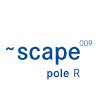 The benefits of collaboration and a welcome opening up of what had become a fairly well-expolored Pole sound helps R stretch Stefan Betke‘s oeuvre into new shapes. Apparently, this was going to be a 12″ project with Burnt Friedman remixing the “Raum” EP originally released on DIN in 1998. Instead, things expanded to include Kit Clayton and four new Pole pieces based around the idea of space (“raum”=”room”). Given their vintage Pole sound, the untouched “Raum 1” and “Raum 2” dub their way along in familar crackling style, snippets of analogue twitching to the echo in fine stepping format, with shifting electronic textures swarming in hypno-trip ways across the spectrum. “2” has the advantage of greater rhythmic purpose to its blend of upbeat minimalism and hazy waverings, and both stand as fine examples of Betke’s electronic Dub on their own.
The benefits of collaboration and a welcome opening up of what had become a fairly well-expolored Pole sound helps R stretch Stefan Betke‘s oeuvre into new shapes. Apparently, this was going to be a 12″ project with Burnt Friedman remixing the “Raum” EP originally released on DIN in 1998. Instead, things expanded to include Kit Clayton and four new Pole pieces based around the idea of space (“raum”=”room”). Given their vintage Pole sound, the untouched “Raum 1” and “Raum 2” dub their way along in familar crackling style, snippets of analogue twitching to the echo in fine stepping format, with shifting electronic textures swarming in hypno-trip ways across the spectrum. “2” has the advantage of greater rhythmic purpose to its blend of upbeat minimalism and hazy waverings, and both stand as fine examples of Betke’s electronic Dub on their own.
At the hands of Burnt Friedman, “Raum 1” gets the barest hints of the sounds of Jazz (Jamaica?) inserted among the defibrillating glitch-over, approaching tangentially more of a traditional Reggae flavour with the addition of percussive samples while swinging off into vibraphone trills and rewind switchbacks. His variation on “Raum 2” dissects the basic rhythms among further lateral Jazz motifs, mellowing out on hi-hat and guitar snippets alike and becoming Friedman’s own in the process. Clayton drops down low into the groove, paring down to the beat essentials before mixing up a clicking stream of electronics with a shuffling lope to its propulsive motion. Before long, the chugging realms of Glitch House music take matters in linear directions on “Raum 1”, splintering the polyrhythms as they go in a whirl of digital firework fragments to a splashdown among the roots of “Raum 2”. Here, proceedings get Funked up to a slithery residue of Betke’s damaged old Waldorf Pole filter, becoming something entirely more Electro Jazz-Funk and groovy once again in the process.
Having taken the remixes on board, Pole brought the guitar of D. Meteo in to play for his own reworkings and on two all-new tracks to boot. With the chops of siz strings and a whole lot more processing, their “Raum 1” broadens the original into a haze of reverse samples and swatches of bleep, delay hits and plucks on the guitar. Once again, the drift into areas yet more familiar from traditional Dub are apparent; skanking chops make an added layer of rhythm to counterpoint the pulsing electronic bass, and instantly widens the characteristic Pole sound immensely. “Raum 2” is likewise transformed into a deracinated jam session, stepping onward with a laid-back feel to the easy strum of guitar as the electronics uncoil themselves and everything they touch with a skipping, Oval-in Dub feel. “Raum 3” starts to feel like both Tortoise and Matmos have been passing through, but it soon settles into the new groove, where “Raum 4” extends into denser pastures (with hints of piano and what sounds like faux melodica).
-Freq1C-
Pole – Rondell
Label: KiffSM Format: 12″
 Two bass-blending tracks from Stefan Betke surface on “Rondell” (actually titled 12″ on the sleeve), taking the bass further down and softer among the sussuerus of aural detritus which make up the large part of the joy of listening to a Pole track. And the bass, don’t forget that now, which is extra warm here thanks to the heavy vinyl pressing. “Rondell Eins” is a slow-builder, layering the glitches while the low end moves gently from a warm glow to a burning boom, and snippets of high end melodies, and even a brief snatch of something resembling a vocal, a cry, make a ghostly presence deep in the mix, as if radio broadcasts are being picked up inside the speakers.
Two bass-blending tracks from Stefan Betke surface on “Rondell” (actually titled 12″ on the sleeve), taking the bass further down and softer among the sussuerus of aural detritus which make up the large part of the joy of listening to a Pole track. And the bass, don’t forget that now, which is extra warm here thanks to the heavy vinyl pressing. “Rondell Eins” is a slow-builder, layering the glitches while the low end moves gently from a warm glow to a burning boom, and snippets of high end melodies, and even a brief snatch of something resembling a vocal, a cry, make a ghostly presence deep in the mix, as if radio broadcasts are being picked up inside the speakers.
“Zwei” take the beat up a few steps, with a more stepping tempo and the glitches dripping off the echo box at the side of the soundscape in slo-mo curlicues. So much more like Dub Reggae in feel, yet so little in actual style or instrumentation, this track marks a new phase of the development of the Pole sound, and still not to be confused with the Digi-dub/Digital Roots scene, though quite likely to appeal on similar levels. Chilled is quite probably the appropriate word, and once again, close attention to the mix reveals all kinds of little tricks buried behind the bass foreground.
-Linus Tossio-
Pole v. Four Tet – Four Tet v. Pole EP
Label: Leaf Format: 12″
 Soundclash time, as Kieran Hebden and Stefan Betke go tape-head to tape-head in their Four Tet and Pole aspects, each recording a track and letting the other plug away until some kind of remix level is reached. The original tracks are put onto the EP as well, so it’s all making for the split single for the Nineties – scratch that, Twentifirst Century…
Soundclash time, as Kieran Hebden and Stefan Betke go tape-head to tape-head in their Four Tet and Pole aspects, each recording a track and letting the other plug away until some kind of remix level is reached. The original tracks are put onto the EP as well, so it’s all making for the split single for the Nineties – scratch that, Twentifirst Century…
Pole’s “Heim”, in unremixed form, is one of his trademark watery, crackly Dub bloomers, wafting bass at almost inaudible levels while that lovely old filter makes everything sound like it’s defrosting at time-lapse speeds, with hints of virtual melodica making the occasional hint at tuneful wheezing. Very relaxing. Hebden makes his version pop more and roll less, instead opting for a slightly nervous (compared to the laid-back original anyway) mix which adds a crisp drum pattern and some chiming sequences into a spice blend of rewinds and tinkly piano loops to give a (very) slightly Popul Vuh feeling to the proceedings.
His own “Cload” brings a mid-range HipHop beat shuffling across a big bass lope, funkily drumming while more chimes build up into a shimmery wall of chops and blips before breakbeat fragments intervene and recede. Four Tet has always seemed to be a project which allows Hebden to take an idea and dub it up from there, and the contrast between this approach the (misleadingly) more traditional sound of Betke’s output is intriguing, especially when seen in close up like this. Betke’s turn, and the Pole mix takes “Cload”‘s chugging rhythms and brings them to the foreground in heavier, wider style, while the shifting echoes and chimes are extrapolated into a reverberating, winding scrawl of phased noise bearing some resemblance to chickawacka guitar. This and the time-shifting sample loops make for a remix which quite easily belies its short running time, and concludes a fine EP which has been well worth the wait.
-Freq1C-
Pony Club – Home Truths
Label: Setanta Format: CD
 Escaping the dreary towers and graffitied playground as depicted on the suburbs of Hell (or any other major city) depicted on the cover of Home Truths, it seems that Mark Cullen has a lot to get off his chest as Pony Club about just how disheartening zand essentially dishonest a world of plastic conformity can be. As he states his case that happiness can’t come from the Argos catalogue, Cullen swings, sings with a heartfelt ire and pumps out a form of adrenaline-fuelled computer rockout “CCTV”, featuring lyrics like “In my Hilfiger shellsuit I’m shiny/With my pitbull right alongside me/Keep it real if it helps you feel/This might be happy but it’s not really Disney”.
Escaping the dreary towers and graffitied playground as depicted on the suburbs of Hell (or any other major city) depicted on the cover of Home Truths, it seems that Mark Cullen has a lot to get off his chest as Pony Club about just how disheartening zand essentially dishonest a world of plastic conformity can be. As he states his case that happiness can’t come from the Argos catalogue, Cullen swings, sings with a heartfelt ire and pumps out a form of adrenaline-fuelled computer rockout “CCTV”, featuring lyrics like “In my Hilfiger shellsuit I’m shiny/With my pitbull right alongside me/Keep it real if it helps you feel/This might be happy but it’s not really Disney”.
That Home Truths contains so many assured radio-friendly ballads and singalong Pop schmoozers is probably thanks to an ear for the sort of music which Karaoke clubs around the whole of Western Europe would be happy to make fools of themselves imitating – but without the irony laid on top of the glossy harmonies and beer-glass bottomed emotionalism. Sometimes Cullen sounds like Marc Almond torch singing as he ignites an abandoned getaway Mondeo by the floodlit Rec at the bottom of the hill which resounds to timeless yells of sportwear-regimented escapism. The narrator of “Millions Like Us” extols the pent up violence and miserable banality of estate existentialism which can only seem to be alleviated by Shania Twain, a “…friendly chemist (who) keeps me me on the drugs/That make the tower blocks look like Gaudi would” or an outbreak of random shootings. At other moments, guest Marion voices “The Thing About Men” to a ponderous breakbeat shuffle, lending a female perspective to low aspiration futility.
Home Truths is a deceptive album – what at first seems so easy, relaxed and polished is buzzing with an undertow of scathing post-Welfare State lyricism – the impression is that Cullen is in excorcism mode, especially on the stirring melancholia of “Home Is So Sad” where he reflects on the disappearance of his brother when he was seven years old. Add in titles like “Afternoon Drinking” and “Flakey Wife”, and it soon becomes almost too much to listen to in detail, and just let the sugar-coated violence and exclusion sink under the singalong flow of Cullen’s assured Pop mechanics. That some of these songs, such as the bittersweet “Tenderness”, could easily become maudlin pub favourites in the establishents described in “Afternoon Drinking” is somehow part of Home Truths‘ ketamine-laced candy charm.
-Linus Tossio-
Pop Tarts– Woman Is The Feuhrer Of The World
Label: Bungalow Format: LP,CD
Funny German female pop music, with it’s collective tongue firmly in cheek, as shown by the knowing title, the blend of sub-Ramones, –Raincoats and –Stereolabisms. Teeny-boppers with a sense of irony, fuzz guitars and keyboards, Pop Tarts are three girls, Franzi, Julia and Olga and a boy, Hendrik (who apparently no longer has the amusing moustache). Definitely not adult-oriented, the ten semi-disposable and divertingly lo-fi songs rush by at fun-Punk speed, barely stopping for breath along the way. Madly amusing.
-Jon Palukha-
Pornosonic – Unreleased 70s Porno Music
Label: J-Bird Records Format: CD
 This is a source of great disappointment for me, because it’s not at all what I expected. I was hoping that this disc would contain the original soundtracks from ’70s Porno music, bad recording quality and all, but instead, it’s a new band-and just one band called “Pornosonic” covering all these songs. I suppose that since these are unreleased tracks to begin with, I shouldn’t have expected to hear that cool crackly sound of a ’70s recording on this, or the barely-stereo sound of the guitar going chicka-chicka-wa-wa, that’s what makes Porno music to me. So it was pretty disappointing to put this on and hear a clean recording with a pretty average band covering these, and not even Ron Jeremy‘s in-between-songs dialogue saved this disc for me.
This is a source of great disappointment for me, because it’s not at all what I expected. I was hoping that this disc would contain the original soundtracks from ’70s Porno music, bad recording quality and all, but instead, it’s a new band-and just one band called “Pornosonic” covering all these songs. I suppose that since these are unreleased tracks to begin with, I shouldn’t have expected to hear that cool crackly sound of a ’70s recording on this, or the barely-stereo sound of the guitar going chicka-chicka-wa-wa, that’s what makes Porno music to me. So it was pretty disappointing to put this on and hear a clean recording with a pretty average band covering these, and not even Ron Jeremy‘s in-between-songs dialogue saved this disc for me.
-Holly Day-
Potuznik – Amore Motore (…Autobahn)
Label: Mego Format: CD
Seemingly recorded in 1996, Amore Motore nods slightly in the direction of Kraftwerk‘s “Autobahn” (the benchmark of road-Electronica) but Gerhard Potuznik has his own road-soundtrack to follow. For starters, it seems that the roads these tunes are meant to accompany or eulogise are as likely to be virtual as mechanical, with the cycling grooves of tracks like “Highway Star” or “Vertical Radiation” reminiscent of the music to an arcade racer, even down to the stretched melodic squiggles which signified a gear change or a particularly sheer curve, but way, way more minimally propulsive. Regardless of whether the road is real or if the vehicle is in fact an exercise bike, the rhythms are definitely of the motorway. There’s a nice line in humour too, as in the wheezing “Reliant” or the semi-cheesy lo-fi drum machine cruise of “Clunk Click” – which is so Ambient that Wim Wenders could have used it for one of those long locked-off car window shots in Alice In the Cities.
“White Lines” has nothing much to do with the famous track of the same name, however, though its Electro beat and coughing snares sound curiously like a Trabant. Likewise “Cars” isn’t the Gary Numan song, being a rather funky piece of upbeat rhythm programming instead anchored by a chunky undertow of fuzz which could give Yello a good downhill motor race. So much of the material works in familiar territory that the landmarks are signposted pretty well in advance, but there are plenty of side turnings too, and thankfully no dead-ends either (Oh, get on with all these motoring metaphors – Ed.)
Kinetics, braking, acceleration and even the odd screech of tyres all figure in more or less abstract terms throughout – as a representation of the thrill of speeding down the highway, Amore Motore is pretty effective, but perhaps best left out of the in-car entertainment centre – as the looped and gradually disrupted vocal in “Formula One” observes, “The race is everything,” and some tracks could probably induce a certain number of tranced-out crashes, especially late at night on a long, dark road. Fuck it, forget the car completely, take the bus and a portable CD player and sit at the front – or stay at home and listen to this instead – so much better for the planet.
-Freq2D-
Joe Preston and Daniel Menche – Cerberic Doxology
Label: Anthem format: Dual CD/DVD
 Cerberic Doxology is a huge, eerie 25 minute epic of vocal chants. Joe Preston and Daniel Menche have captured the vastness of the pacific north west USA amidst layer upon layer of drone. They begin and end with chanted melodies, which gives a nice circularity to Cerberic Doxology. The music is as timeless and unchanging as the landscape they evoke, as immovable as the monumental stones of the Stonehenge memorial in Washington State . For me there is something very Russian to the opening melodies. They could equally well be creating a sonic image of the Siberian steppe. That’s the kind of epic scale we are dealing with here.
Cerberic Doxology is a huge, eerie 25 minute epic of vocal chants. Joe Preston and Daniel Menche have captured the vastness of the pacific north west USA amidst layer upon layer of drone. They begin and end with chanted melodies, which gives a nice circularity to Cerberic Doxology. The music is as timeless and unchanging as the landscape they evoke, as immovable as the monumental stones of the Stonehenge memorial in Washington State . For me there is something very Russian to the opening melodies. They could equally well be creating a sonic image of the Siberian steppe. That’s the kind of epic scale we are dealing with here.
Mr Preston and Mr Menche don’t mess around. Then they really hit the drones. Think Sunn O))) or Earth, but made using vocals (incidentally, Joe Preston has worked with both of these bands in the past … along with Harvey Milk, High on Fire, and the Melvins). Think Ligeti‘s vocal compositions. Huge layers of vocals drifting in and out, processed and unprocessed, covering all elements of the spectrum from guttural growls to choral highs. The result is an epic Buddhist chant from the smoking top of Mount St Helens.
The video on the DVD side of the disk is shot in grainy black and white. Its the perfect visual counterpart to the droning chants. Every bit as haunting as the sound track, they shot it around Mount St Helens. Huge empty panoramas of primordial volcanic stone drift in and out like the wash of vocals. Joe Preston and Daniel Menche have hewn out a timeless classic. Amazing.
-Alaric-
Primal Scream – Exterminator
Label: Creation Format: CD

Read Harper Godhaven‘s extensive review article here.
Prince Far-I – Health and Strength
Label: Pressure Sounds Format: CD,LP
Political upheavals in this album’s potential West African market in the late Seventies caused the original UK label to invoke the drop-out clause in their rather one-sided contract with renowned singer and producer Prince Far- I. The original master tapes became lost or were destroyed, but a cassette copy surfaced in 1997, and this album is the result.
Surprisingly excellent quality remains, presumably due to a first generation tape copy and a certain amount of digital de-hissing. Certainly little of the depth of the recording has been lost, least of all from the warm, booming bass which Far-I favoured – for his singing voice as well as the electric kind (though the latter has a tendency to boom on even large speakers). Lyrically expressing his conscious wisdom on subjects from the dangers of smoking tobacco (“Health Warning”) to false love of money (“Clean Hands Pure Heart”) in his unmistakeably idiosyncratic, mesmerisingly gruff tones, the Prince comes across as combined preacher and ancient prophet. Nowhere is this better demonstrated than on the apocalyptic call to “Leave Babylon” in favour of Rastafari, which closes the album with a mixture of melancholy and hope.
The rhythms and recording quality may be stronger than those on his excellent Psalms For-I, thanks in part to the group of musicians who include legends such as Style Scott, Sly Dunbar, Robbie Shakespeare, Flabba Holt, but whether this album as a whole ranks among his greatest remains to be seen. Thankfully this fragment of a crucial era has been recovered from the abyss, and adds further evidence of the genius of a man so senselessly murdered.
-Antron S. Meister-
Prince Jazzbo – Mr Funny
Label: Pressure Sounds Format: CD,LP
 Mr Funny? Now there’s an ironic misnomer for this gruff doom-saying Reggae deejays if ever there was one (save perhaps the gravel-voiced Prince Far-I, of course. Prince Jazzbo has a lot to say on the state of the world as it was in Jamaica twenty-plus years back, and not much of it is complimentary. The title track makes much reference to “An eye fi an eye an’ a tooth fi a tooth” for starters, and his reflections on the role of women in society are a little less than reconstructed. Still, he was one of the first deejays to reclaim the N-word on “Black Is Power” and “Every Nigga Is A Winner”, predating and probably inspiring the odd rapper or two, but that’s the least of his several claims to fame. He’s not much fond of the Pontiff in Rome either, as the latter track declares: “The Pope is a dope/’Cos the Pope eat pork”, though it’s harder to be certain who he’s inviting to “Drop dead” here – but who can fault his dislike of hierarchical religion?
Mr Funny? Now there’s an ironic misnomer for this gruff doom-saying Reggae deejays if ever there was one (save perhaps the gravel-voiced Prince Far-I, of course. Prince Jazzbo has a lot to say on the state of the world as it was in Jamaica twenty-plus years back, and not much of it is complimentary. The title track makes much reference to “An eye fi an eye an’ a tooth fi a tooth” for starters, and his reflections on the role of women in society are a little less than reconstructed. Still, he was one of the first deejays to reclaim the N-word on “Black Is Power” and “Every Nigga Is A Winner”, predating and probably inspiring the odd rapper or two, but that’s the least of his several claims to fame. He’s not much fond of the Pontiff in Rome either, as the latter track declares: “The Pope is a dope/’Cos the Pope eat pork”, though it’s harder to be certain who he’s inviting to “Drop dead” here – but who can fault his dislike of hierarchical religion?
As ever with Pressure Sounds‘ estimable collections of ultra-rare 7″ singles and album tracks from the Reggae archives, the sleeve notes are comprehensive and entertaining as much as informative, detailing Jazzbo’s rivalry with the arch-deejay U-Roy and his production career to date. The music, though, is simply stunning slow drive through a plentiful sparkle of Ska-inflected trombone skanks like the version of “Mr Funny” itself via all the righteousness of a Rastaman in full vocal flow, with the consequent take-it-or-leave-it patches of Biblical dread referencing. Nevermind, his opinions are best when referring to the corruption of Babylon and capitalism in particular on “Youth In Service”, when inspiring Black consciousness and praising the weed on “Jamaican Collie”.
There can be few deejay collections of such heavy theology and stoned preachiness, though it’s a bit of a crowded arena for sure. Mr Funny packs a massive weight, shakes the mind as well as the floorboards, and is at its very best when the bass and drum combines with the sonorous tone of Jazzbo’s vocal rhythms, if perhaps not always when considering some of its sociological implications. As the back of the sleeve proudly proclaims, “Another Hit!” for Pressure Sounds.
-Antron S. Meister-
Programme – Ma Cerveau Dans Ma Bouche
Label: Lithium Format: CD
It has been said that a certain amount of repetition helps concentration and focus. But, what happens when unfamiliar elements are inserted here and there amongst the rhythm? Spoken words are dropped amongst the familiar elements – drum, bass, and some unknown electronics. It’s all in French and by default makes wonderful fuck music. Which is to say that it is fuck music with a certain amount of wonder involved – whether it will curtail rhythms because it contains unfamiliarity depends on how silver-tongued one becomes.
At one point it seems as if the words are called in, over the telephone. There is a certain distance created by the intertwining of the sounds with the language – both hinge on various levels of understanding to bridge that gap. Or just what is it? Do the unfamiliarities in sound compel closer listening – closing the gap in themselves? A vibrating of strings and then the clarity of the bell. And is the real dictation lain in the making of the volume knob raise or lower? The words repeat from atop the atmosphere, meld with other unknown spirits, and vanish into, out from, and back through.
-David Cotner-
Project Pollen – Project Pollen
Label: Sideburn Format: CD, LP
No particular surprises here from Project Pollen’s debut album – slow-burning, cleanly-produced mellow TripHop vibes, courtesy of Steve Greenwell and Ron Paul. The duo’s pop leanings are undermined by the occasional biting guest vocal from Dawn Desimone on the deceptively propulsive “Scum”, while Gene Ween adds a typically odd lyical moment to “Maria” – though here decidedly not as warped as he could have been. Pleasant rather than overly engaging, there are more nice moments such as the opening “That’s OK,” which trundles along on a vibe-based undercurrent, than particularly exciting ones. As with a lot of loungey, ambient TripHop, this album never really gets off the ground, contentedly noodling in a frothy, background manner, neither slipping fully into either indifference or mediocrity, but not doing very much of lasting interest either.
-Freq1C-
Propellor – Argento
Label: Scratch Format: CD
An organ keens a beacon behind a mass of shattered signals. Voices slow themselves into the cloudbank and the scree twirls – and how deeply can certain sounds bring out an inherently psychotropic quality of the mind? The beacon seeps out the other side – dissolving into static and hiss. An errant humming (by way of the machine mind mouth) gives way to rhythmic starts – slightly reminiscent of someone waiting for something, and the small moments where brilliant beats are remembered through the idle fingers. A strumming of stringed instrument, and is it beginning to look a lot like Christmas – another small moment emerges – of kicking cans in the streets? Then, around another corner – static peels off from an onion of sound, moving in coils. It flutters and shifts into a velvet swath of onreaching being, changing so gradually as to be unnoticeable. Another strumming emerges, count and pointercounting against crackle, whirr, crackle.
Pastoral tones in tune, now, melting into a sheer sound – a ripping of the fabric? And does in-depth work with strange materials leach itself into the creation of sounds? Piano, now – much and in a minimal way. Yet even with minimalism – how much is “enough”? How much is “too much”? And how long until there is a very very active “pushing around” of what little sound there is to work with? Call-and-response of different sounds now – at odds? Communicating? Is there a conspiracy of sound that works beyond the control of the creator, working independent of his hand?
T he sounds rise up to create their own forest now, and travel through themselves – static inverting and emerging from melodies and untouched pools of feedback. The sounds breathe themselves into coos and chirps, gradually descending as the piano returns into view. And then – almost a convergence of everything that’s come before – looking back upon it all. Were the plans laid for these sounds in some fitful night of sleep, years ago? Upon making that last special packaging? Through the ashes of a woundful, wonderful release? Then, like the glistening green flash of setting sun and the wavering waves therein – the sound passes, and moves away.
-David Cotner-
Psomni – Minimalism
Label: Spat!/Netherworld Format: CD
A trio, recorded by a Nashville label, who manage to sound as though they’ve come out of Manchester. Their music is a dark, gritty trawl through gloomy Gothic terrains where bass lines shudder and the vocals are grey and shot through with angst. Well, I think its angst. At times the voice is processed and tries to bellow up out of the mix and at others it is apparently singing in Albanian or Japanese. Really.
There is an atmosphere of industrial decay which hangs over the post-Punk melancholia and that too puts me in mind of the metropolis which spawned gloom meisters like Joy Division. Sure enough, they are cited as an influence, as are Radiohead, Eno and Sonic Youth. So it gives you some clues about the territory. The leaden quality of the first three or four tracks is redolent of staring for hours at a sheet of cast iron slowly rusting in the rain. But occasionally, their sound is enlivened by the judicious use of other instruments, such as keyboards and sax. Then they break out of the ponderous rhythms and the music becomes more spacious and less claustrophobic.
It is early days for this band. If they can shrug off some of their turgid leanings and develop their tentative explorations into Ambient and Jazz-tinged Electronica they will be worth following.
-Paul Donnelly-
Public Works – Numbers
Label: Elevator Bath Format: 9″
 Lloyd Dunn and Ralph Johnson have taken a different tack in their Public Works project from their contributions to The Tape-beatles over the years. They’re still at the cut-up game, still tilting at the untitled windows of the windmills of post-Modern culture, but with a focus that has shifted into production of beats and rhythms of more even temper, somewhat mellowed out even from the intense evisceration of political and social life in the Western world.
Lloyd Dunn and Ralph Johnson have taken a different tack in their Public Works project from their contributions to The Tape-beatles over the years. They’re still at the cut-up game, still tilting at the untitled windows of the windmills of post-Modern culture, but with a focus that has shifted into production of beats and rhythms of more even temper, somewhat mellowed out even from the intense evisceration of political and social life in the Western world.
Numbers presents observations built upon observations of the undercurrents coursing through the digital world, wheezing loops, recursing anti-rhythms and melodies from various sources ancient, modern and “exotic” left both relatively untouched and those which are propelled into the depths of sampling malleabilty. Voices from the electronic aether remark upon mundane matters and nature of reality, in passing or otherwise; but if Public Works have any answers, they’re not ramming them home here, being far more inclined to play tricks and place puzzles in the clear vinyl artefact itself. Those infamous Numbers Stations, or something similar, make a guest appearance among the mysterious self-referencing babel. The end result is an uncanny, impressionistic collage, choosing neither to present much explicitly for easy digestion, nor seeming entirely randomized and affectless either.
-Antron S. Meister-
Puppy – Horizontal
Label: The Sprawl Imprint Format: CD
Out of Wolverhampton via Seattle, Puppy‘s debut says very little about either town, but lots about the current state of electronic music. Every sound source is grist to someone’s mill, and Horizontal likes it technological and spacey. Cue opening track “Weightless,” which tries hard to be, and the chugging amphetamine rush beat and chirruping bleeps of “Lofoam” which has all the necessary speed for fast car journeys or downhill skiing. Then again, it’s probably best to listen to Puppy with a computer game as the source of onrushing trees and the like (and only appropriate considering David Hodgson‘s day job involves programming the very same), as the forward motion of many tunes is considerable. “Fight Scene” is an obvious case in point, a slugfest of colliding beats ducking and diving to an aggressive wall of sustained feedback, but despite the possible interpretation of “Stella By Headlight” as some kind of beer and car reference, it’s one of the more dynamic little movers of percussion over and around sub-bass on the album.
Tracks like “Limitless Personal Convenience” or “The Telematic Corporation” show more restaint, with digital dub undercarriages supporting mellow enough moments of shimmering synths before building to a Skiffy (that’s Sci-Fi to you) laser frenzy or two, with a dash of analogue buzz to taste. The utopian gleam of futures past is still a central motif, but there’s plenty of cyberpunk darkness to be found under the pastel colour-clash of the Pop Art cartoon sleeve.
Take the grunting soupscape of “Pigs On The Rollercoaster;” it’s what could be heard from the virtual funfair on the seafront at Brighton in The Hitchhiker’s Guide to the Galaxy (the one where the sea stays where it is and the buildings wash up and down) – mewling cyber gulls and the sound of bricks in an accreting surge of rhythmic motion. “Photosensitive” is a bit of an epic journey through a mile-long space colony to its rotating, gravity-free hub – the thematic feel is a decidedly post-Modern mythological one, and even grandiose at times. Horizontal is about as feel-good as pre-Millenium breakbeat Electronica gets without once getting sentimental or vapid.
-Freq1C-
Pure – Noonbugs
Label: Mego Format: CD
 Exhibiting a deep concern with the possibilities of repeated loops and the emergent properties of harmony and counterpoint when switched to a level of long drawn out intensity, Pure propel Noonbeams from stasis to involvement and back again. With eight tracks merged into a continuous whole, the CD takes its own sweet time in preparation for the electronic progress; as dynamic areas of sound ebb and flow, the tweaking of one source will act on the rising intonation of another, developing the piece in organic fashion.
Exhibiting a deep concern with the possibilities of repeated loops and the emergent properties of harmony and counterpoint when switched to a level of long drawn out intensity, Pure propel Noonbeams from stasis to involvement and back again. With eight tracks merged into a continuous whole, the CD takes its own sweet time in preparation for the electronic progress; as dynamic areas of sound ebb and flow, the tweaking of one source will act on the rising intonation of another, developing the piece in organic fashion.
More conventional synthesizer chords slide out from a forest of mild (or otherwise) discordances and shining monotone phrases pierce the ears without leaving a mark, driving the distraction home with acute attnetion to the pain threshold of a high-pitched tone. Anyone mistaking Noonbugs for an Ambient work is in for a pleasant surprise – it’s far more involving than the term would usually imply, with the moments of still contemplation riddled through with scurrying short-delay reverberations or the threat of a pulse modulation waiting in the wings with a few Vocoder and sampler surprises.
Track three, “Ivan”, is especially enlivening, as a bank of processed voices skip across the stereo picture in a sinuous game of tag which resolves into the heaving Force 4 digital swell of “Duck” with its processed violins and bleeps. By the time the crackles and cellos at the darker reaches of “Pelt” step to an erratic heartbeat, the mood becomes at once more conventionally composed and more soundtrack like, with a smattering of radio static paving the way for the deep space transmissions of “Flew” and its melding of cut-up loops with shimmering and squittering synthesis on the short wave band. The final rhythmic unfolding of “Robe” segues coils of gloopy oscillator into brightly-shining tones before evaporating into nothingness with a satisfying electronic trill of conclusion.
Where Noonbugs excels is in the sense of discovery that the composion and the very sounds themselves engender. While these analogue and digital territories may have been touched upon before on myriad occasions, they are always open to expert traverse, and this is where this disc provides more than adequate satisfaction.
-Antron S. Meister-
Pure – Low
Label: Staalplaat Format: CD
 Austrian artist Pure‘s installment in the designer’s fun house Material Series for Staalplaat comes wrapped in copper mesh, and is the longest of the set so far at just under an hour in length. Divided up into four sections, it opens with a metallic-tasting electronic shimmer to “LOW.one”, follows the sine and vibrato on course through a brain-drilling session into a stepped-back end of part one. “LOW.two” drops down an octave or so, with a mid range hum to set the midriff rumbling; the physical effects of these recordings are intriguing – reports from an immersion tank would be welcome. “LOW.three” feels and sounds like being sucked through a very long vacuum tube and into a dot matrix printer at first, then supplements the electronic antiquity in favour of postponing a slap-back jet engine takeoff for as long as possible until something like a descending tonal vortex is acheived, with a curious hint of castanets to raise the odd eyebrow in the most sonically varied piece on Low.
Austrian artist Pure‘s installment in the designer’s fun house Material Series for Staalplaat comes wrapped in copper mesh, and is the longest of the set so far at just under an hour in length. Divided up into four sections, it opens with a metallic-tasting electronic shimmer to “LOW.one”, follows the sine and vibrato on course through a brain-drilling session into a stepped-back end of part one. “LOW.two” drops down an octave or so, with a mid range hum to set the midriff rumbling; the physical effects of these recordings are intriguing – reports from an immersion tank would be welcome. “LOW.three” feels and sounds like being sucked through a very long vacuum tube and into a dot matrix printer at first, then supplements the electronic antiquity in favour of postponing a slap-back jet engine takeoff for as long as possible until something like a descending tonal vortex is acheived, with a curious hint of castanets to raise the odd eyebrow in the most sonically varied piece on Low.
As with many minimal electronic works where the dive into a single range of sound interactions becomes this intense, the division between tedium and fascinated envelopment is a finely grey-scaled area. That would be part of the attraction though, and Low is pretty much a definitive example of the form. Hence it can be described as both lovely and irritaing at the same time, though the piece de dissonance is “LOW.four”. This sets the analogue starship controls for deep hyperspace, picking up some sub-aetherial radio transmissions along the journey past flotillas of unidentified electronic musical objects and entities. All of this can acheive the feeling of time travel after a while – which is a poisitive effect, by the way, and becomes decidedly disturbing too as the otherworldly voices take on elemental personalities of bad trip proportions. This sensation sn’t helped (but greatly stimulated by) the fade-out which bears tingly resemblance to the sound of expanded polystyrene being tweaked. What fun.
-Freq1C-
Alexander Purkart Meets Plastic Park – Take Me Higher
Label: Force Inc. U.S. Format: 12″
The only reason some records get reviewed is politeness; it’s one of the obligations of being a reviewer. Thats where it stops. “Take Me Higher” is one such record. I’d like to be really offensive about it, but somehow I just can`t seem to summon up the enthusiasm. Another obligation of being a reviewer is to convey what type of music it is. Here goes: one side is Housey, the other side veers towards Speed Garage. Need I say more? I`m not impressed.
-T. Mephistati-
Pussy Galore – Right Now and Dial M For Motherfucker
Label: Mute Format: CD
Well, Pussy Galore, right, sound like one of your mates’ bands, right, but if they were good. And if they hit bits of metal. And if yer mates were cool enough to call a song, in A VERY REAL SENSE, “Fuck You Man”. And it’s this garage-rock sensibility, coupled with amphetamine-fuelled attitude and an amyl-fuelled take on life (not to mention a smack-fuelled take on EVERYTHING FUCKING ELSE- bear in mind these reissues are librarian’s archives on The Jon Spencer Blues Explosion and Royal Trux– but MORE FUCKING ATONAL) that makes these albums Rock more than Metal, and gives ’em more soul than R’n’B combined, and basically adds up to the sheer rock messiahood to which the Ramones could only play John the Baptist, and which-
Aaaah, fuck you, man.
-Deuteronomy 90210-
Pussy Galore – Sugarshit Sharp
Label: Mute Format: CDS, 12″
Re-released ten years on from its original outing on Caroline, there’s little about “Sugarshit Sharp” which has been mellowed by the years. Steve Albini’s (anti)-production helps, as the squalls, roars and scuzzy R&B clatter spit out of the speakers. Devo’s “Penetration In The Centerfold
becomes an industrial holler fest, while the five short, sharp Pussy Galore originals rock like they were recorded by a very wired electric blues band on very bad chemicals with a spanner and a hubcap for percussion – which maybe they were. The highlight of the EP remains their cover of Einstürzende Neubauten’s sublime “Yü Gung,” here rendered into a lo-fi shockabilly stomp which does with guitars what Neubauten did with scrap iron and springs, even slipping into wah-Funk mode for the finale.
-Antron S. Meister-



